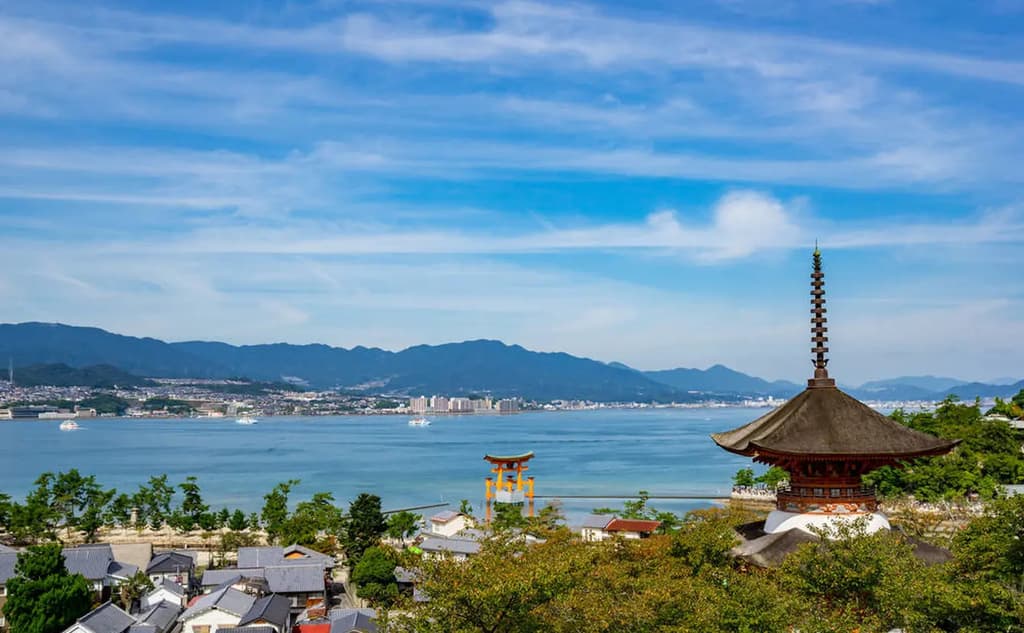Hiroshima Prefecture, which attracts tourists from all over the world, is the largest tourist city in the Seto Inland Sea region, home to two World Heritage Sites, the Atomic Bomb Dome and Itsukushima Shrine. Many popular spots are concentrated along the Seto Inland Sea coastline, where visitors can enjoy sightseeing while gazing at the calm, clear, and beautiful sea. In this issue, we will first introduce the must-visit sightseeing spots in Hiroshima by major area and then by various themes!
4 popular spots in Hiroshima City
Atomic Bomb Dome (原爆ドーム)
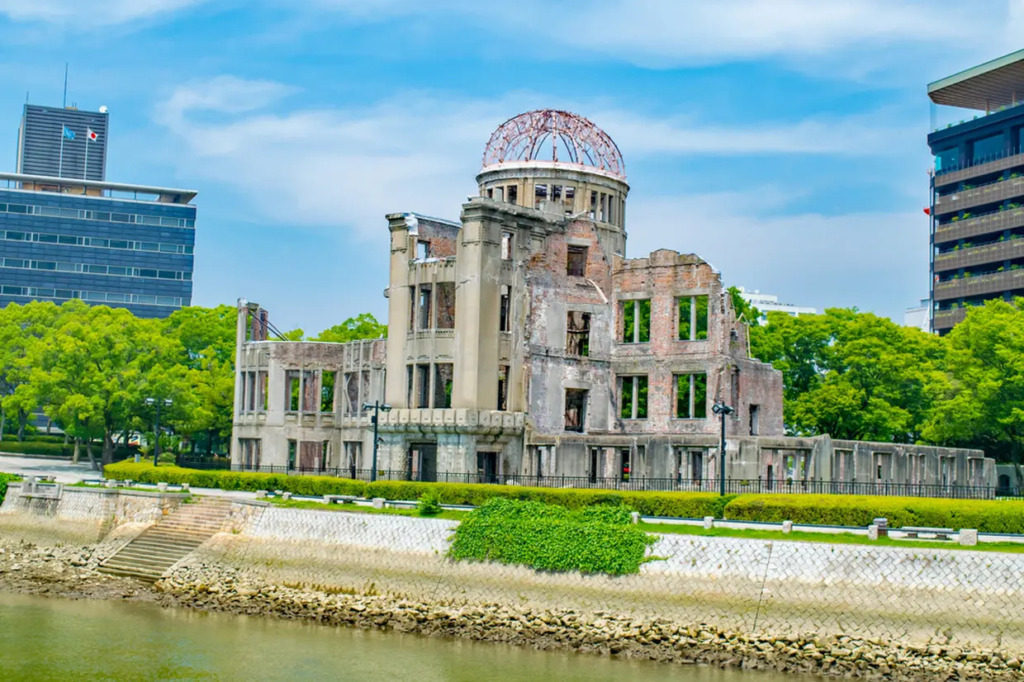
Hiroshima Peace Memorial Park, encompassing the Atomic Bomb Dome and other facilities near the hypocenter, serves as a powerful reminder of the city’s devastation following the 1945 atomic bomb. Each year, people from around the world visit the park to offer prayers for peace.
Atomic Bomb Dome was designated a World Heritage Site in 1996. It is an important architectural structure that conveys to future generations the devastating power of nuclear weapons and the horror of war. The structure’s remaining exterior wall and skeletal frame underscore the catastrophic effects of war.
Peace Memorial Park (平和記念公園)
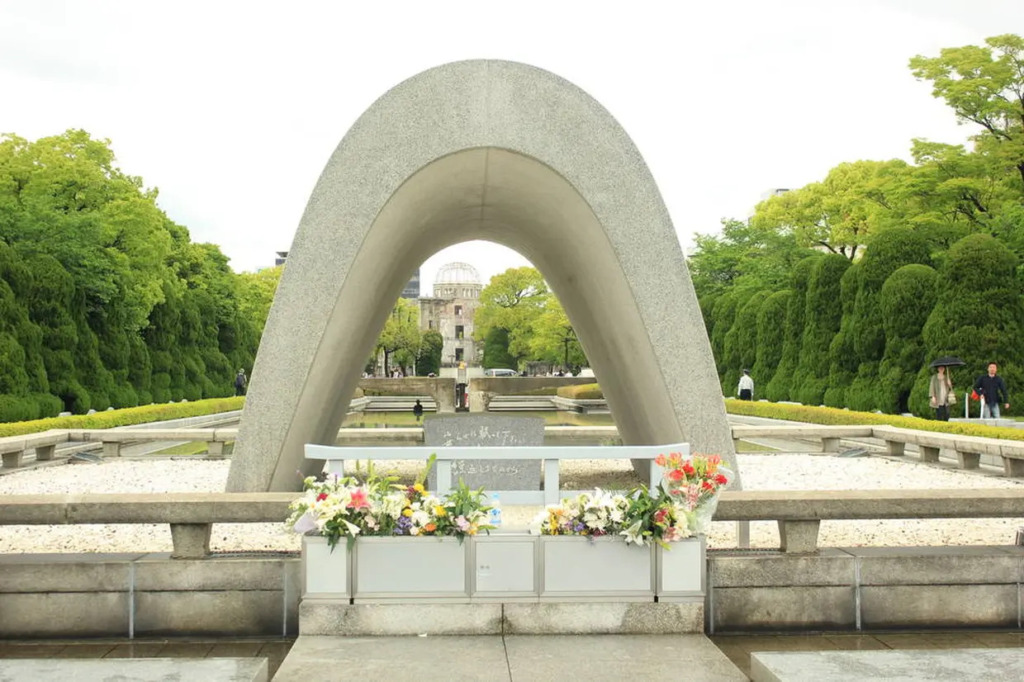
Peace Memorial Park, located near the hypocenter, was established with the hope of achieving lasting world peace. Throughout the park, visitors can find various memorials and stone monuments. Among these is the Hiroshima Peace Memorial Museum, which showcases exhibits about Hiroshima at the time.
Shukkeien Garden (縮景園)
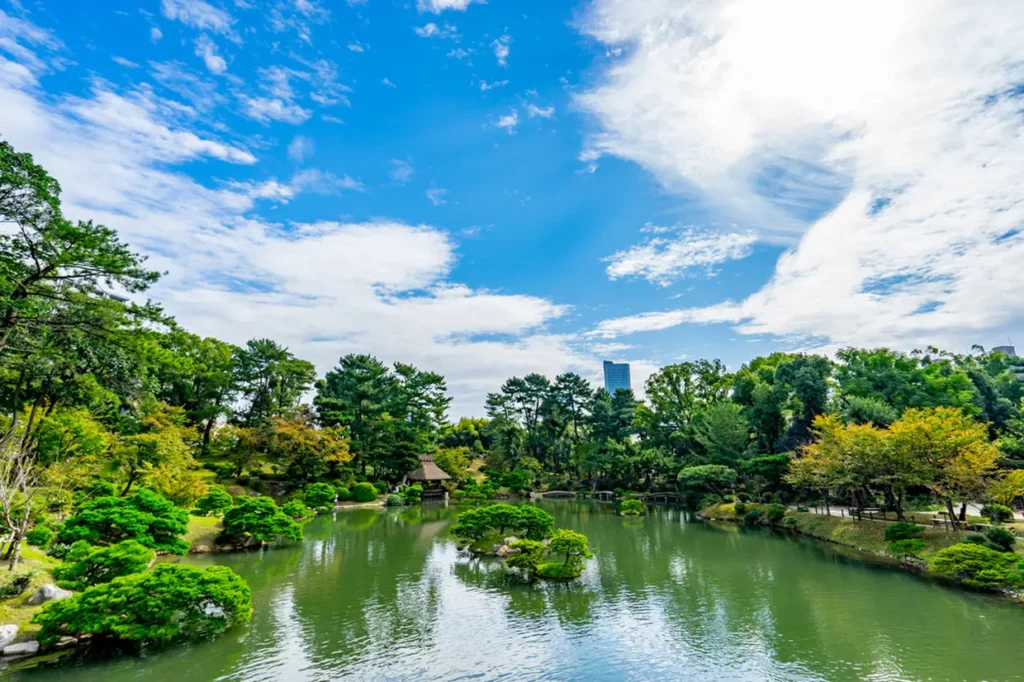
This garden, established around 1620, served as the grounds for the villa of the lord of the Hiroshima domain. Located in the heart of Hiroshima City, it features trees and flowers that transform with the four seasons, offering a stunning display year-round. Throughout the year, the garden hosts a variety of events, including tea ceremonies and festivals, many of which are open to the public. It has long been a cherished spot for relaxation for both residents and visitors from Hiroshima Prefecture and beyond.
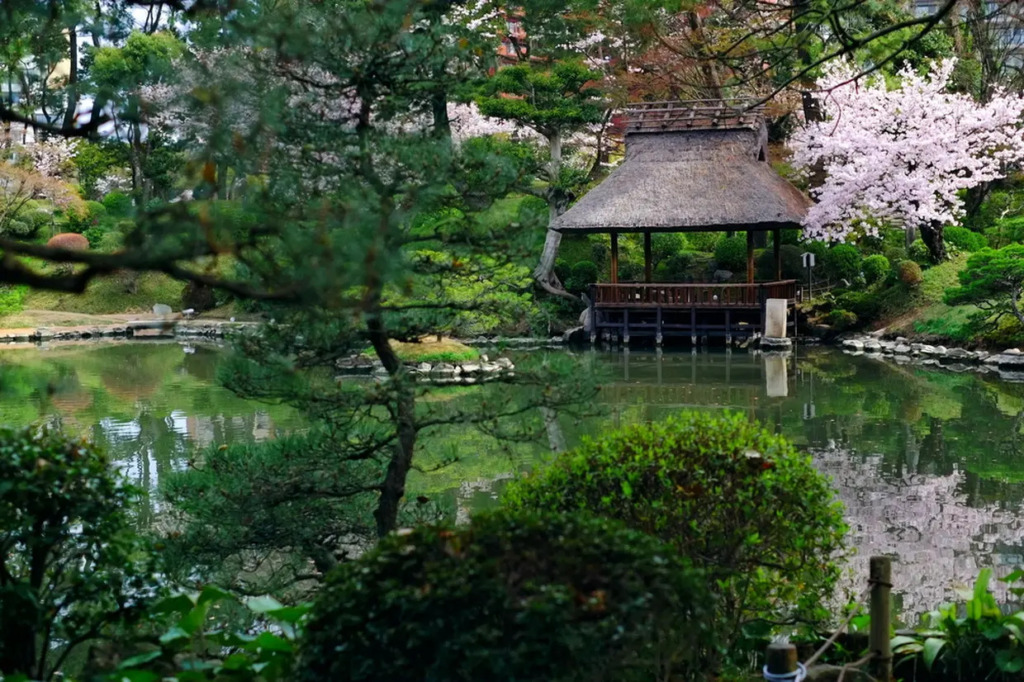
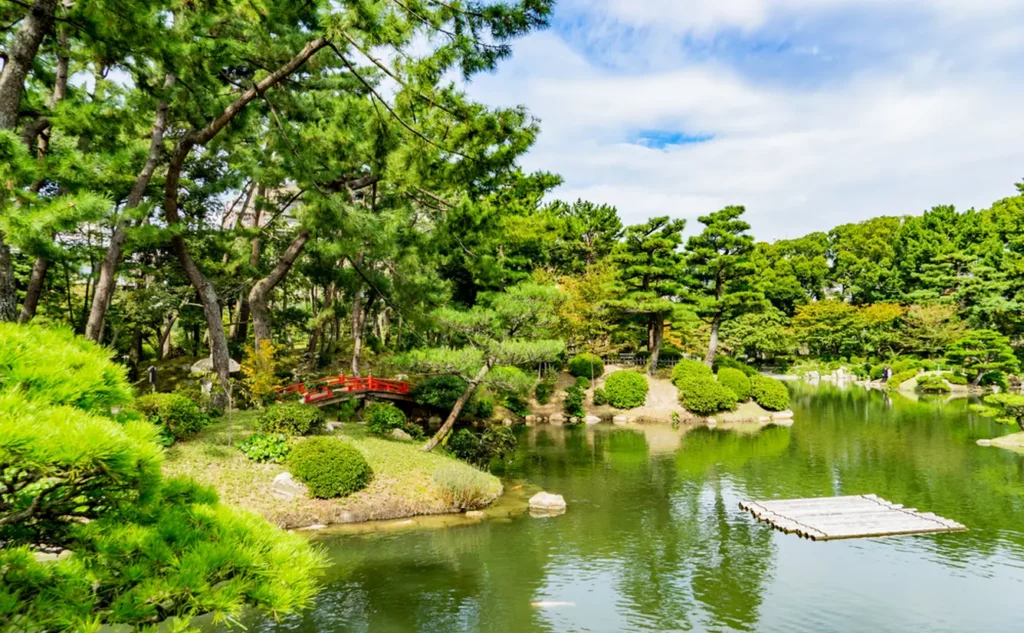
Hiroshima Castle (広島城)
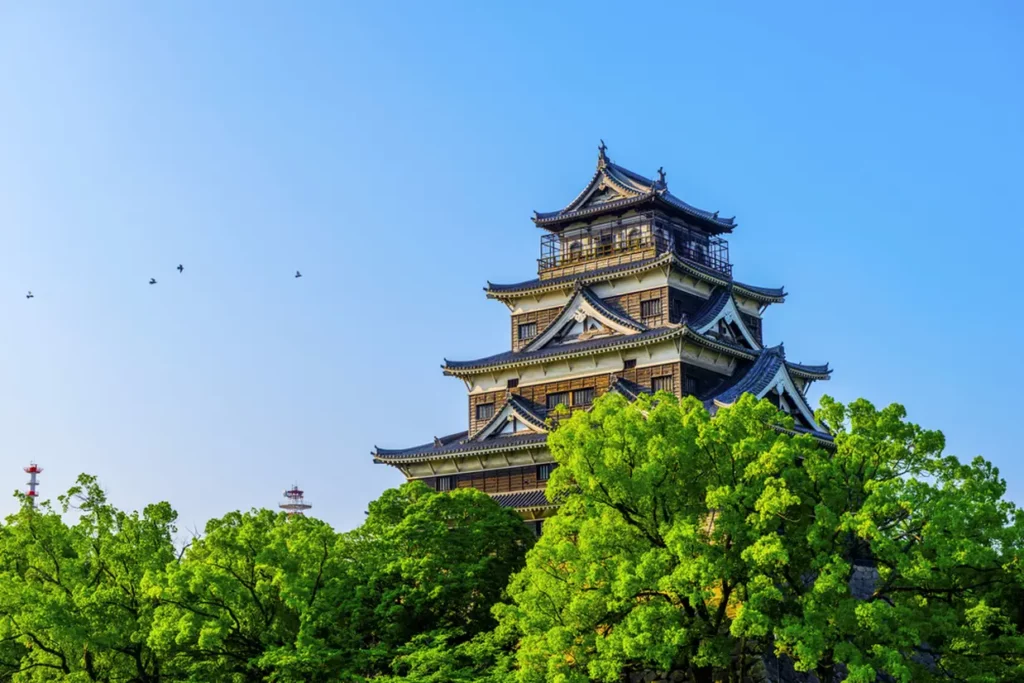
Hiroshima Castle is located in the center of Hiroshima City. built in the 16th century by Terumoto Mori, the castle is a symbol of Hiroshima’s history and culture. Today, Hiroshima Castle functions as a history museum, where visitors can learn about the history of Hiroshima and the castle’s architecture inside the castle. The exhibits include armor, helmets, swords, and other historical materials, allowing visitors to feel close to Japanese history.
From the keep of Hiroshima Castle, visitors can enjoy a beautiful view of Hiroshima City. Especially in spring, the cherry blossoms surrounding the castle are in full bloom, attracting many cherry blossom-viewing visitors. The vast castle park is also suitable for strolling, and is recommended for enjoying the changing nature of the four seasons.
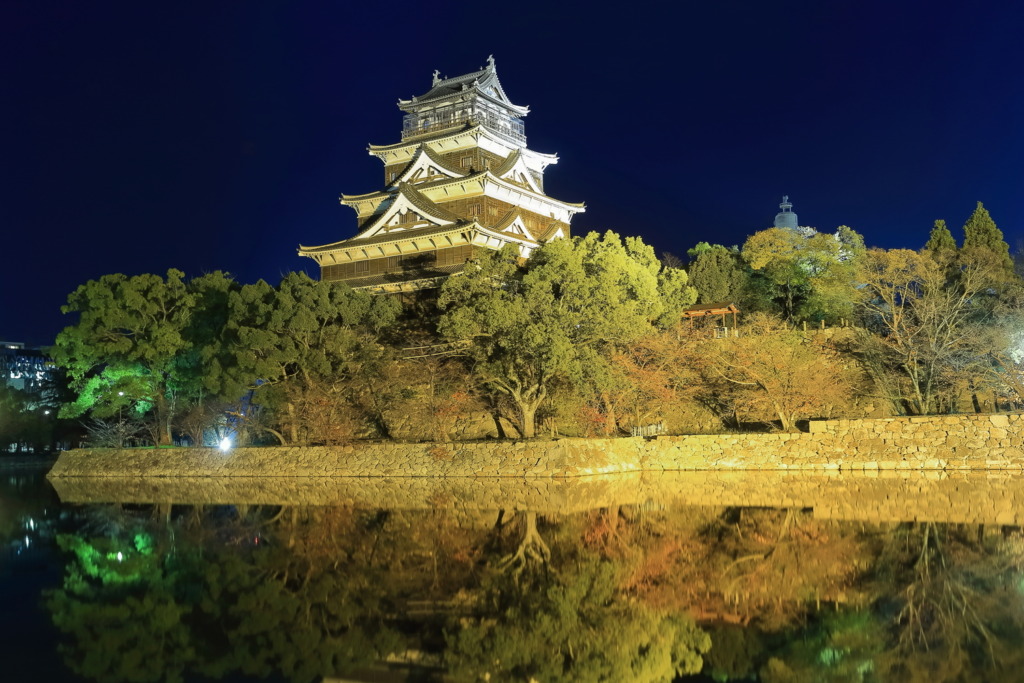
4 popular spots in Miyajima Island
Itsukushima Shrine (嚴島神社)
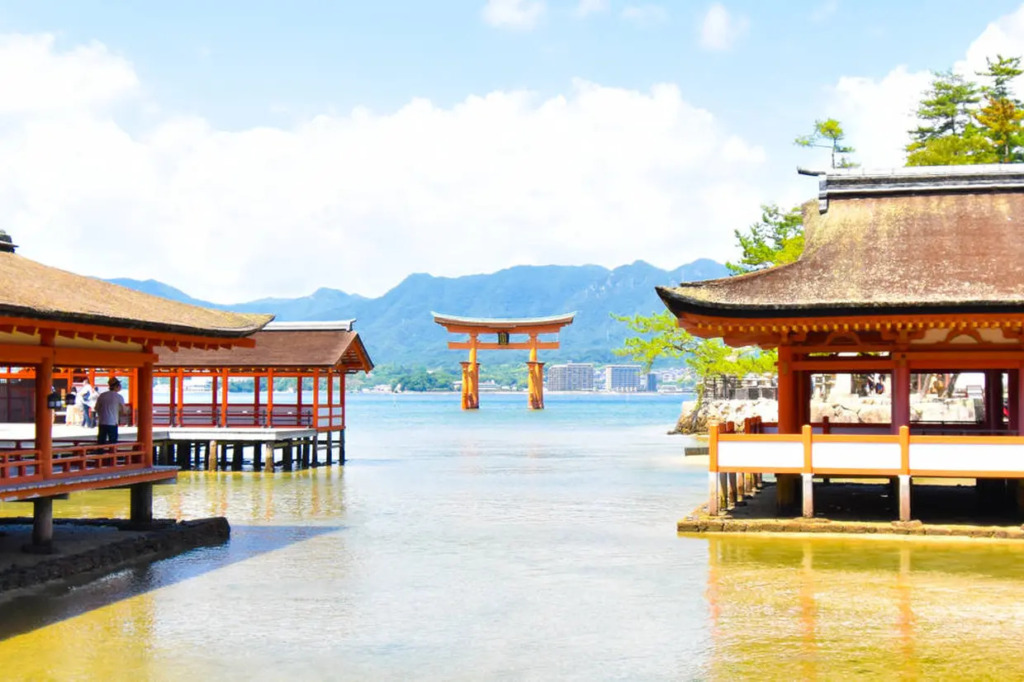
One of the must-visit spots in Hiroshima sightseeing is Itsukushima Shrine on Miyajima. The view of the shrine pavilions on the sea is rare in the world, and the scenery that changes with the ebb and flow of the tide is very beautiful. There are also many deer around Itsukushima Shrine, and many people enjoy taking pictures with them. When the tide is low, you can get very close to the Otorii, so why not enjoy both scenery with high and low tides?
Miyajima Omotesando Shopping Street (表参道商店街)
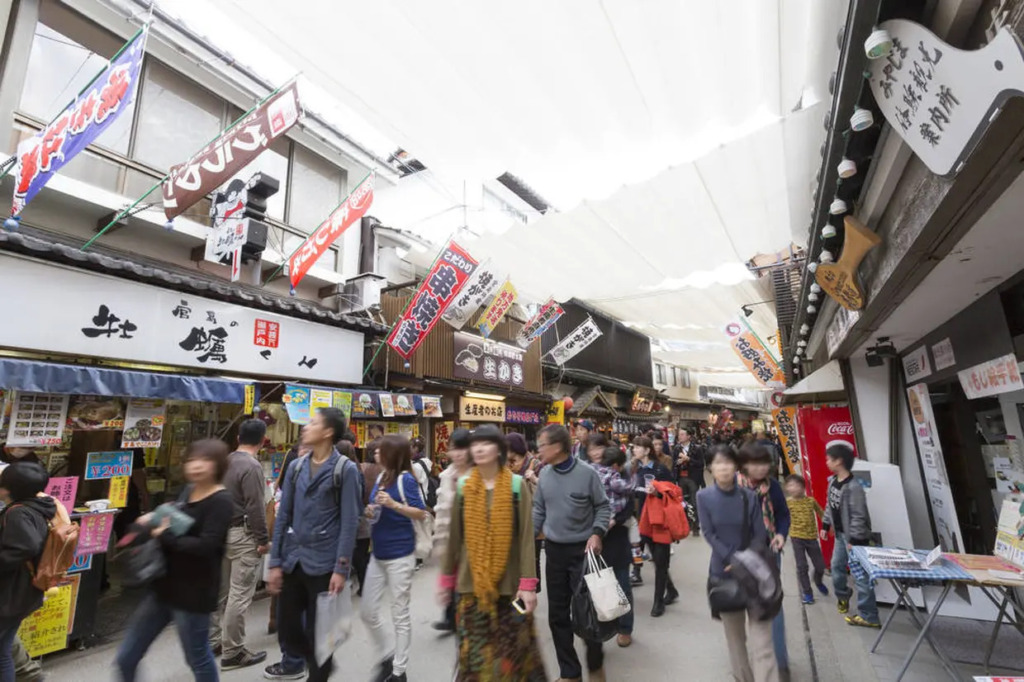
The busiest street in Miyajima is the 350-meter Omotesando shopping street. It is lined with about 70 stores, including restaurants where you can have a seat and enjoy a meal, many momiji manju stores, souvenir stores, and take-out stores. It never loses its liveliness throughout the year.
It is important to note that all stores often close around evening. In addition, some of the more popular and less stocked stores often close as soon as they sell out. If there is a gourmet dish you are looking for, we recommend that you visit early time!
Mount Misen (弥山)
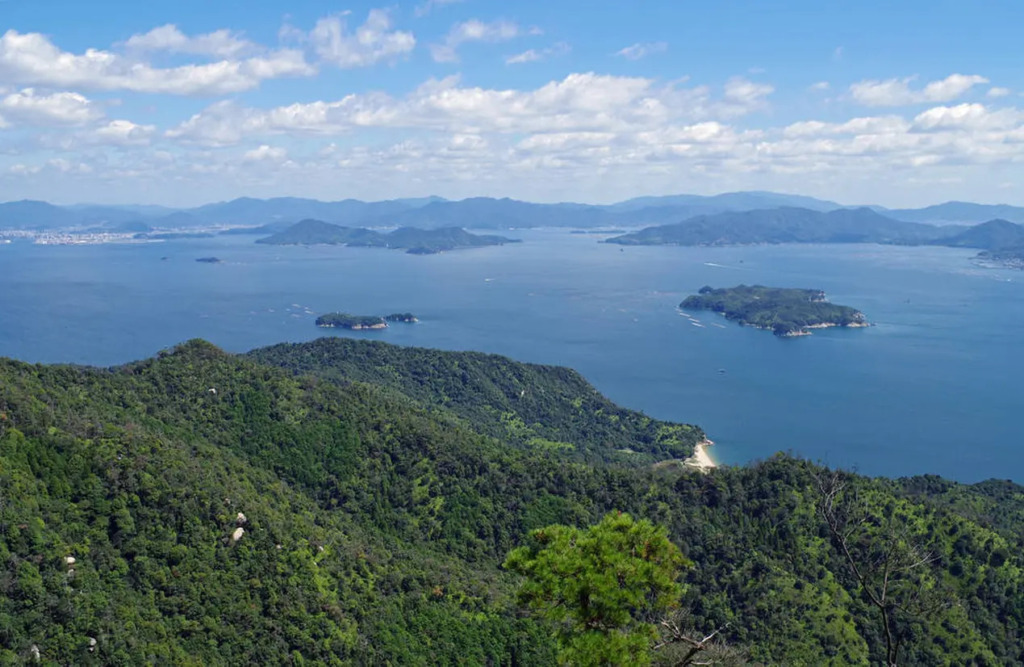
Mount Misen is a 535-meter-high sacred mountain. Mount Misen is characterized by the presence of huge rocks everywhere. From the Shishiiwa Observatory near the summit, visitors can enjoy a beautiful contrast of the rugged rocks and the beauty of the Seto Inland Sea’s many islands. During the fall foliage season, the area is crowded with people, making it a luxurious spot where visitors can enjoy the collaboration of beautiful foliage trees, the Seto Inland Sea, and the Otorii Gate.
Daisho-in Temple (大聖院)
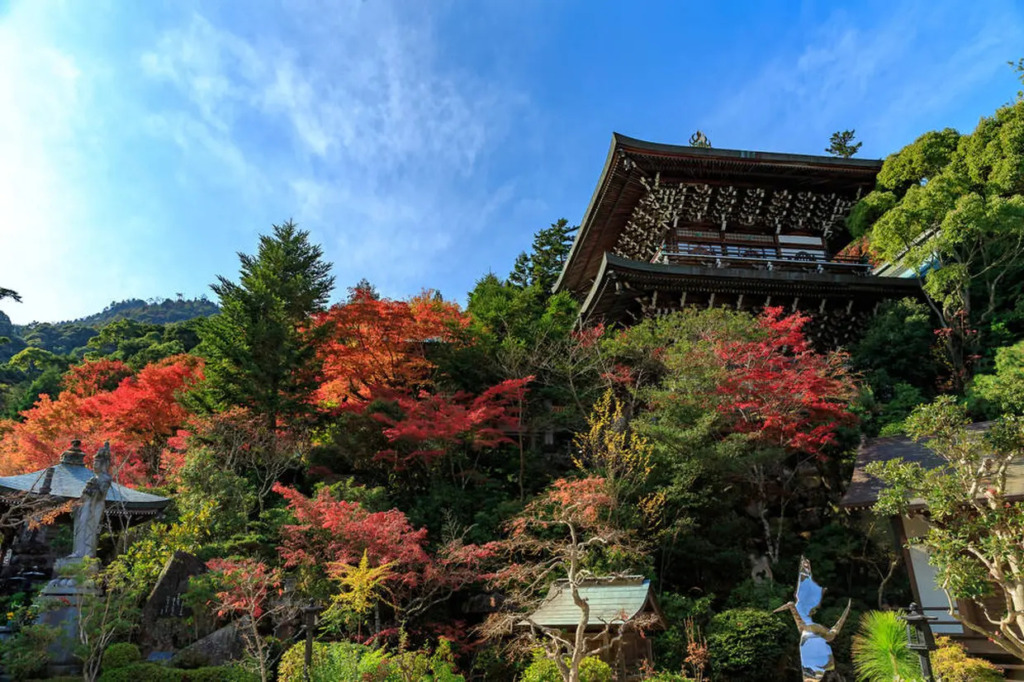
Daisho-in Temple is the oldest temple on Miyajima island. Located at the foot of Mt. Misen, it is a 10-minute walk from Daigan-ji Temple and the Itsukushima Shrine Treasure Museum. Various Buddhas and Jizo statues are enshrined within the temple grounds, and the temple is dotted with spots where visitors can receive blessings. It is renowned as a powerful spiritual site on Miyajima and is popular among worshippers.
3 popular spots in Onomichi
Senkoji Temple (千光寺)
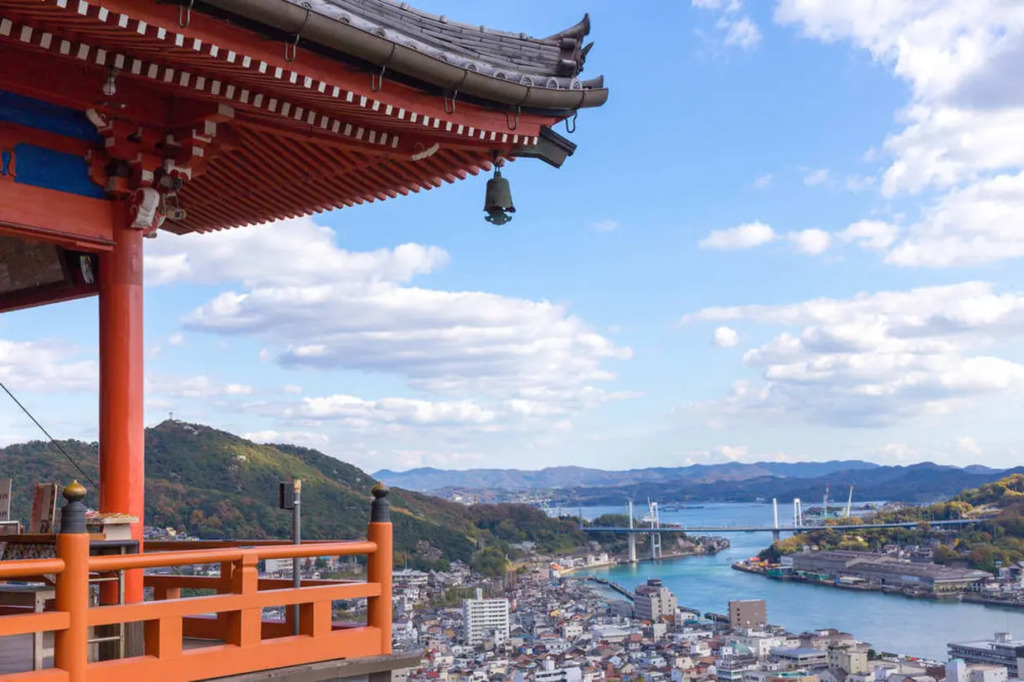
This temple has a history of over 1,000 years and is a popular spot that cannot be missed when sightseeing in Onomichi. It is located on the grounds of Senkoji Park, which stretches halfway up Senkoji Mountain. The main hall with a panoramic view of the city of Onomichi is symbolized by its beautiful vermilion-lacquered structure. It is also revered as a beneficial spot for matchmaking.
Neko no Hosomichi/Cat Alley (猫の細道)
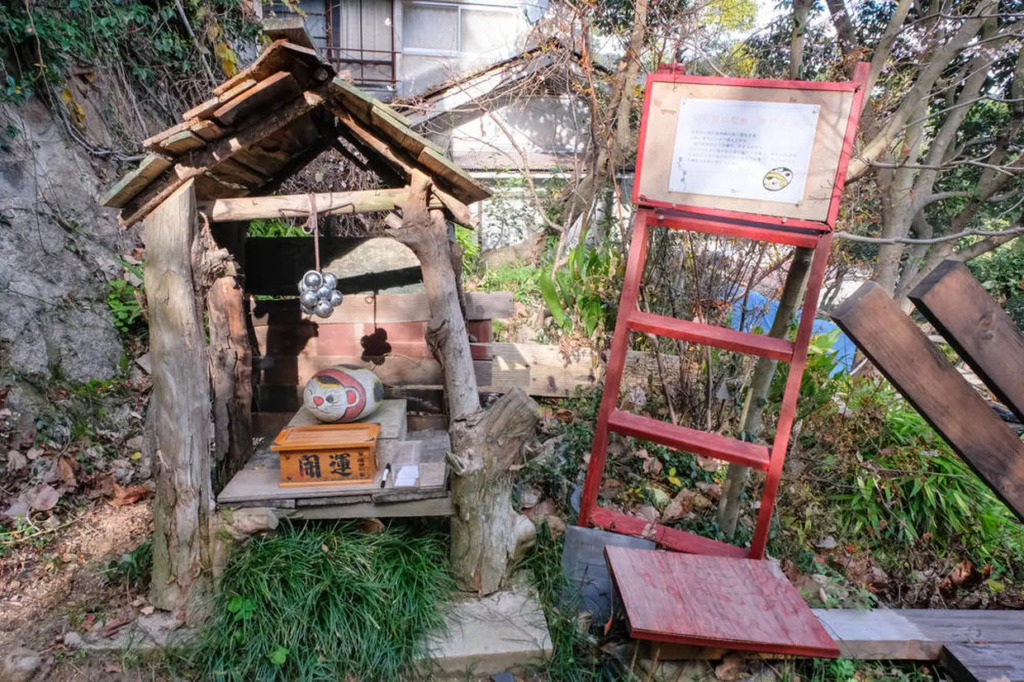
Neko no Hosomichi is a narrow 200-meter slope that leads to the hill behind a shrine called Ushitora Shrine, located right next to the ropeway stop to Senkoji Temple. The path is dotted with ‘Fuku-ishi-neko’ (lucky cat stones) — round stones featuring paintings of cats painted by artist Shunji Sonoyama. This cute alley, with its delightful cat illustrations and artistic motifs embedded in the alley, offers a unique and charming stroll.
There is a unique old house café, a general store of cat goods, and a gallery, so if you stop by Senkoji Temple, it will be good and fun to walk down through this alleyway. You will also be able to meet real cats.
Onomichi Main Shopping Street(尾道本通り商店街)
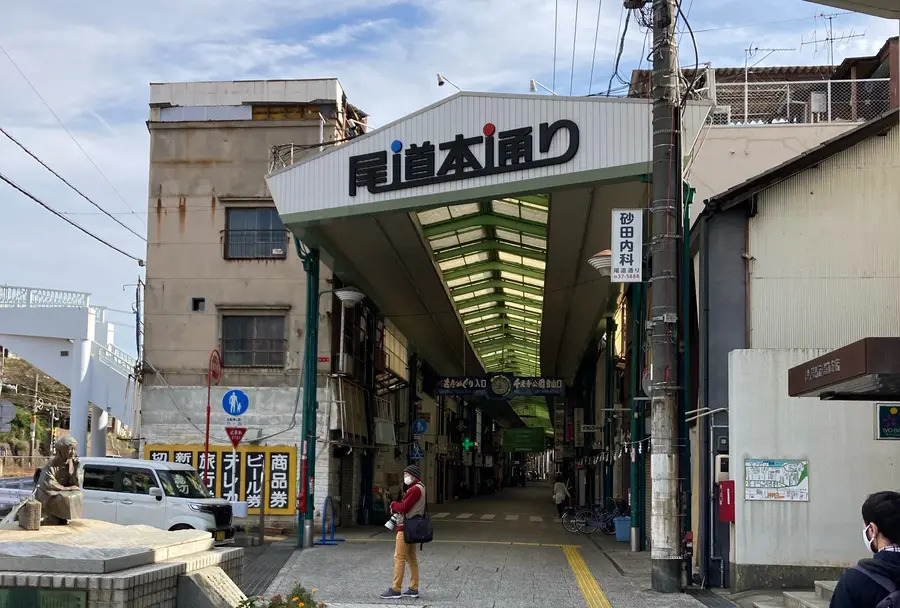
Onomichi Hondori (Main street) Shopping district is a historic shopping street in Onomichi City, a favorite shopping area for locals and tourists alike. This shopping street is within walking distance of JR Onomichi Station. The approximately 1.2-kilometer street is lined with traditional stores and modern cafes and restaurants.
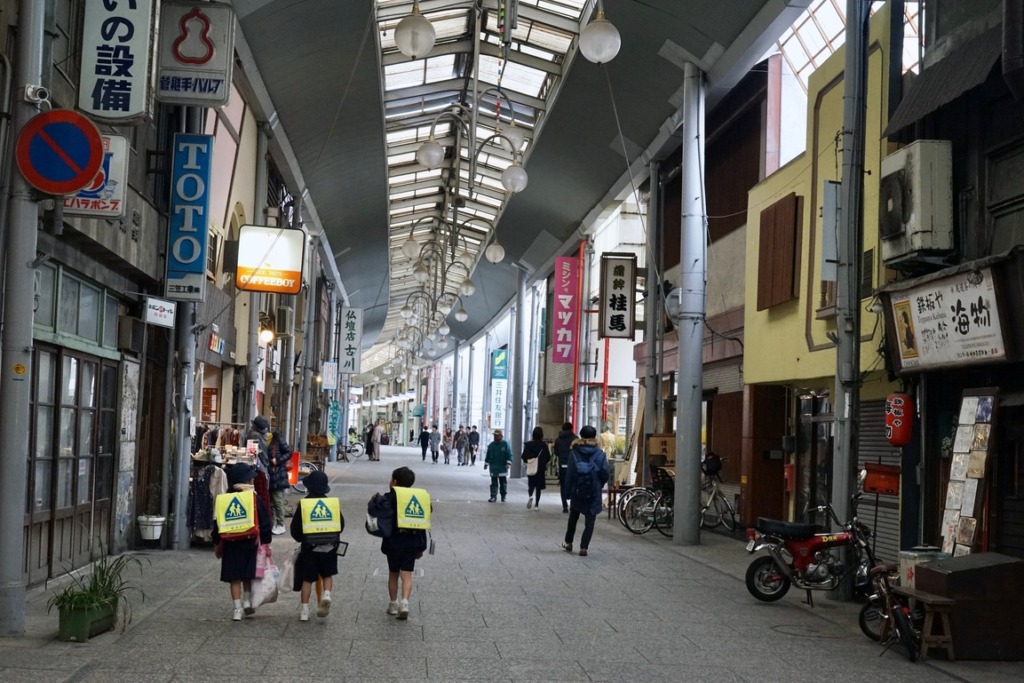
3 popular spots in Kure
Yamato Museum (大和ミュージアム)
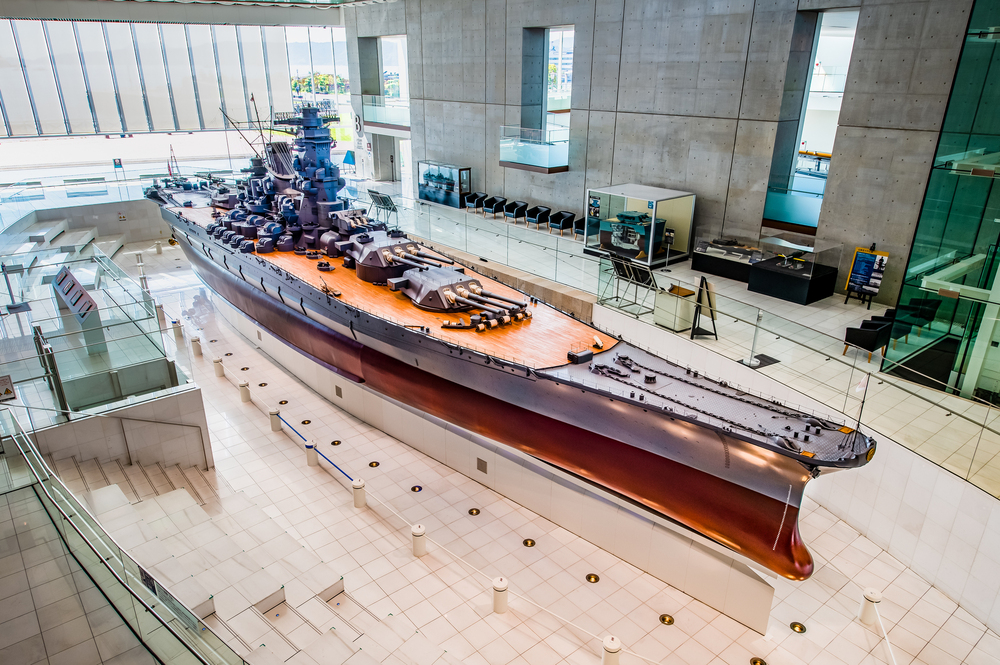
The symbol of the Yamato Museum is a 1/10th scale replica of the most famous battleship in Japan, the Yamato, which was once built in Kure. Families who love ships and battleships gather from all over Japan. The facility exhibits many large and valuable materials. In addition, visitors can learn about shipbuilding technology and the history of Kure, which has prospered as a port city since ancient times.
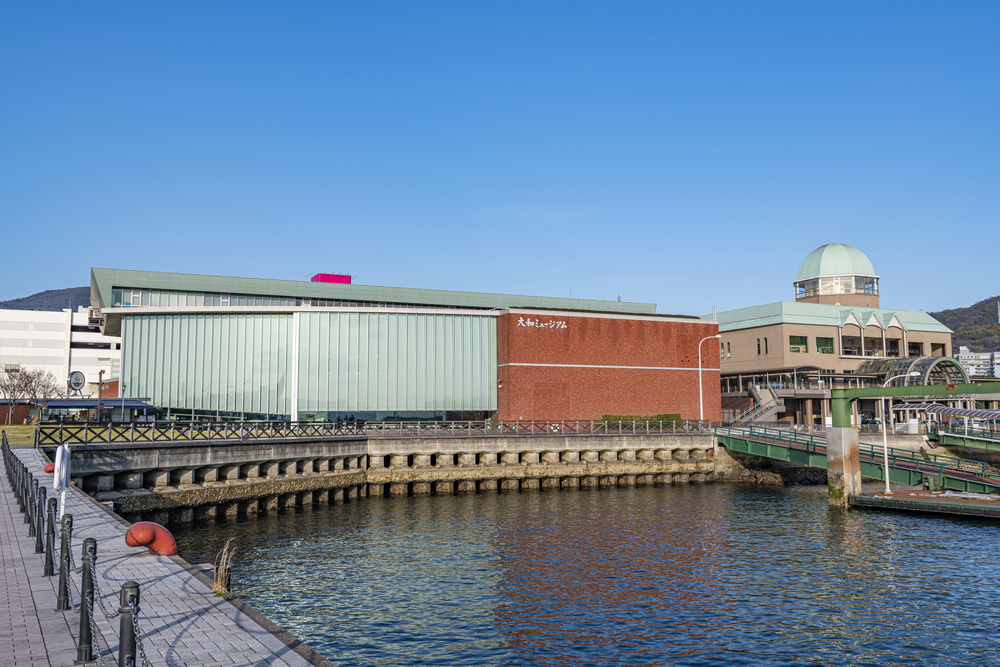
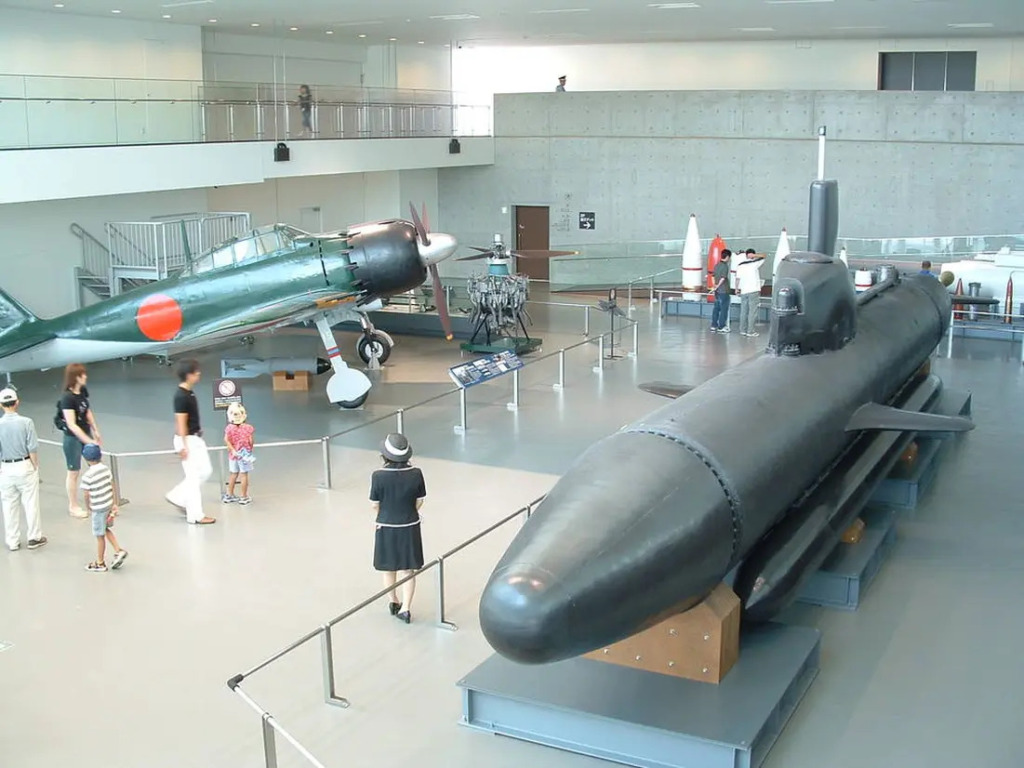
JMSDF Kure Museum (海上自衛隊呉資料館/てつのくじら館)
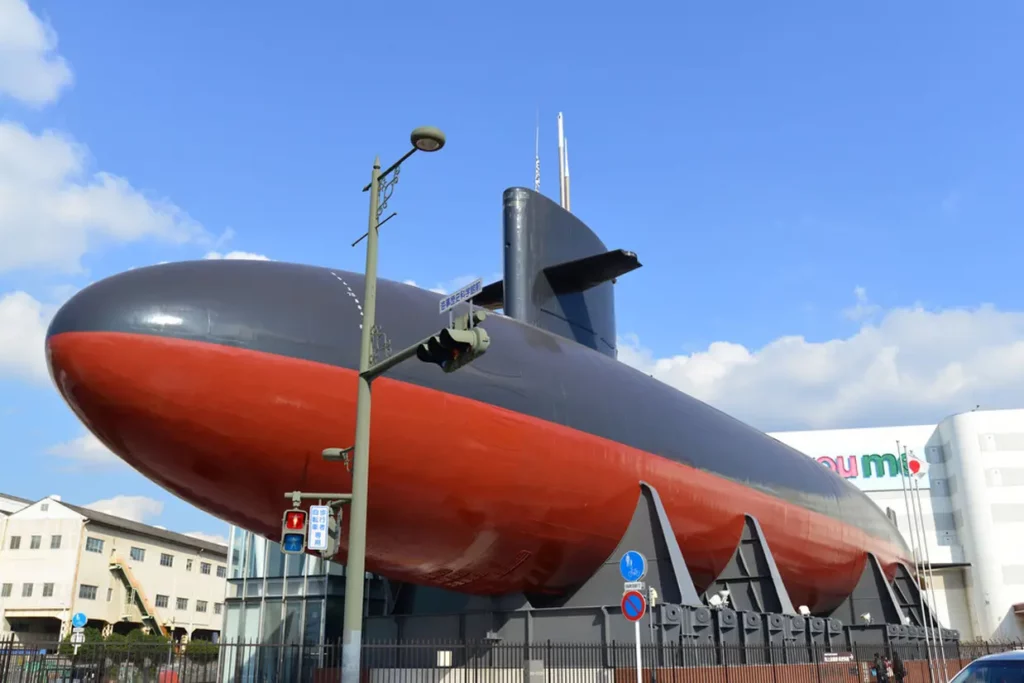
This is the only valuable facility in Japan that exhibits an actual submarine. The submarine was actually in service until 2004, and the interior is open to the public in almost its original condition and can be visited. It is located next to the Yamato Museum, so when you visit, be sure to take a tour of both as a set.
Mitarai Townscape Preservation District (御手洗町並み保存地区)
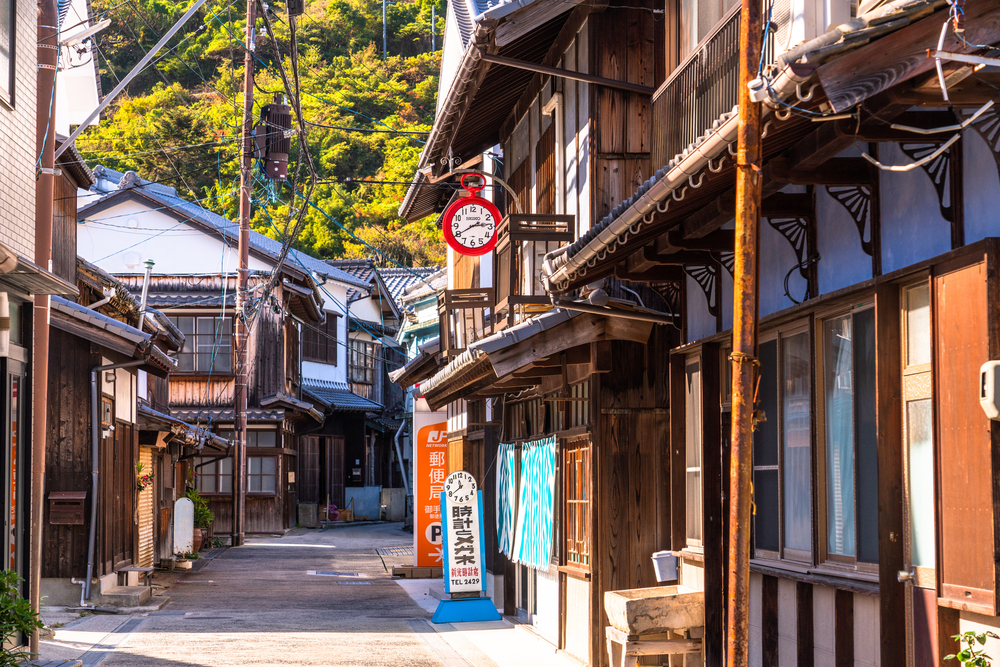
Mitarai Machinami Preservation District is a beautiful historical port town located on Osakishita Island. Osakishita Island is a remote island southeast of Kure City, located in the center of the Seto Inland Sea. It once flourished as an important port town in the Seto Inland Sea, with many ships calling at the port. Due to this historical background, the Mitarai area still retains historic sites such as merchant houses and town houses that remind us of the prosperity of those days.
Mitarai Townscape Preservation District is a precious place where you can experience the traditional Japanese retro townscape and its rich history. We invite you to visit and get a sense of past Japanese life along with the quiet and charming scenery.
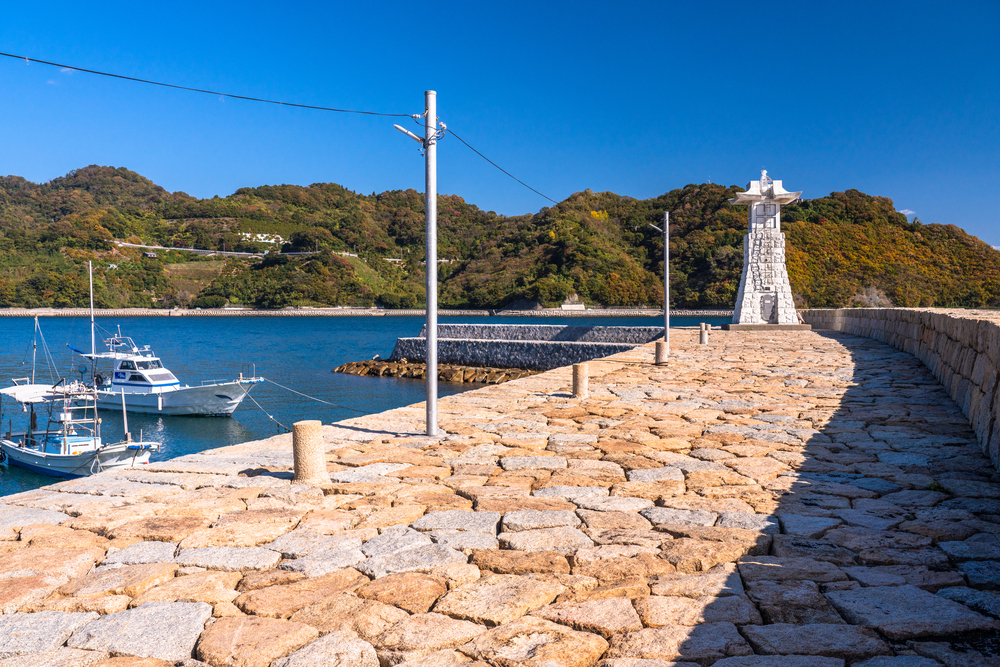
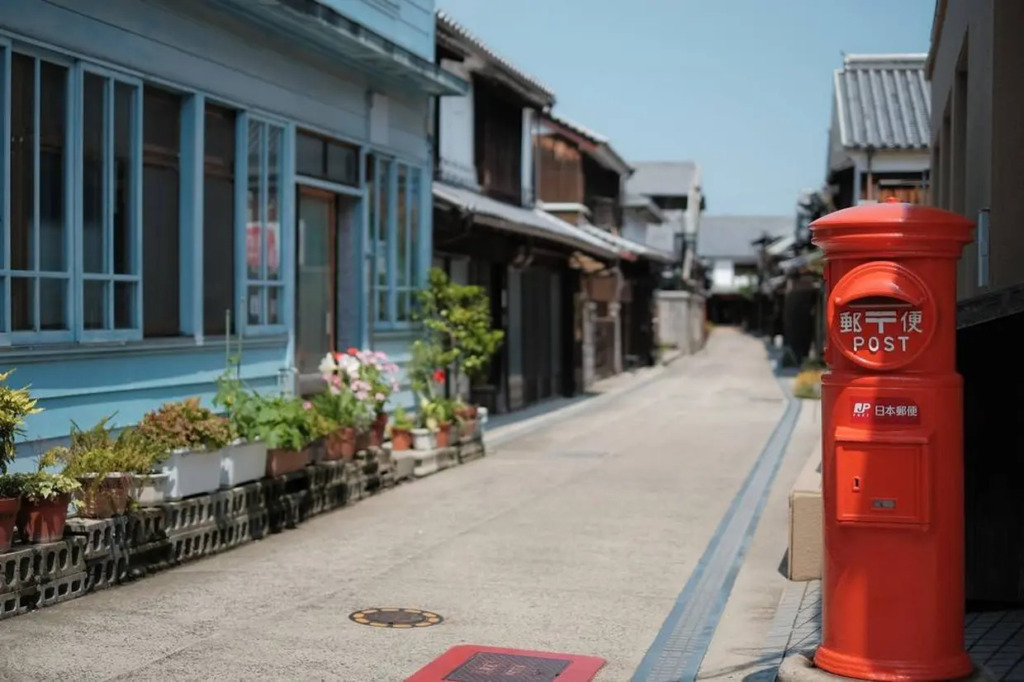
3 popular spots in Fukuyama & Tomonoura
Fukuyama Castle / Fukuyama Castle Museum (福山城 / 福山城博物館)
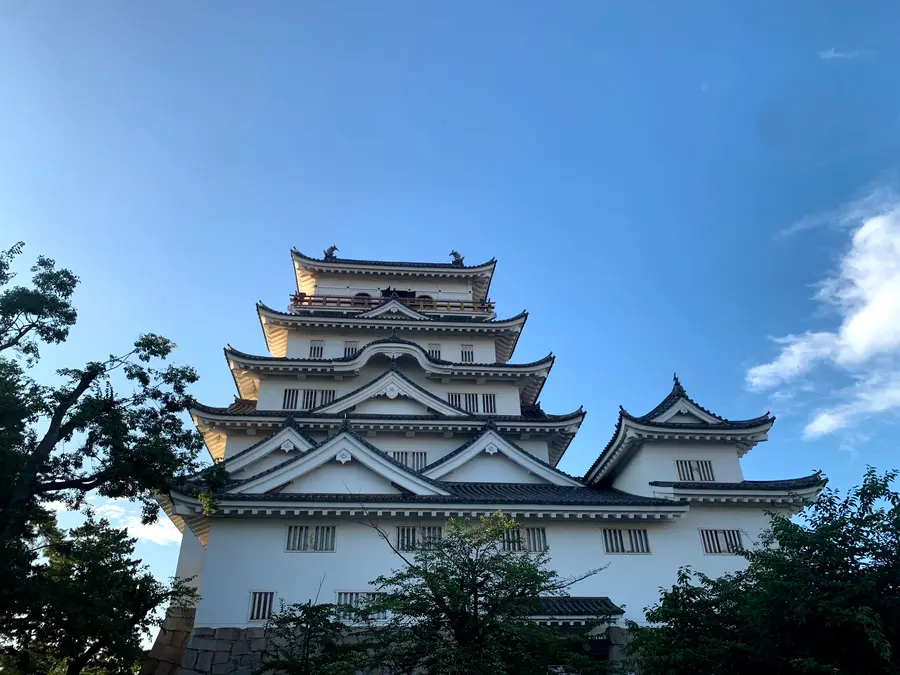
Fukuyama Castle was built by Katsunari Mizuno, the first lord of Fukuyama domain. The castle tower was rebuilt after the war, and now offers a beautiful view of Fukuyama city from the castle grounds. Within the castle grounds is the Fukuyama Castle Museum, which exhibits the history and culture of the castle. The surrounding Fukuyama Castle Park attracts visitors with its cherry blossoms in spring and flowers in every season. This is a must-see spot when visiting Fukuyama City.
Abuto Kannon Temple (阿伏兎観音)
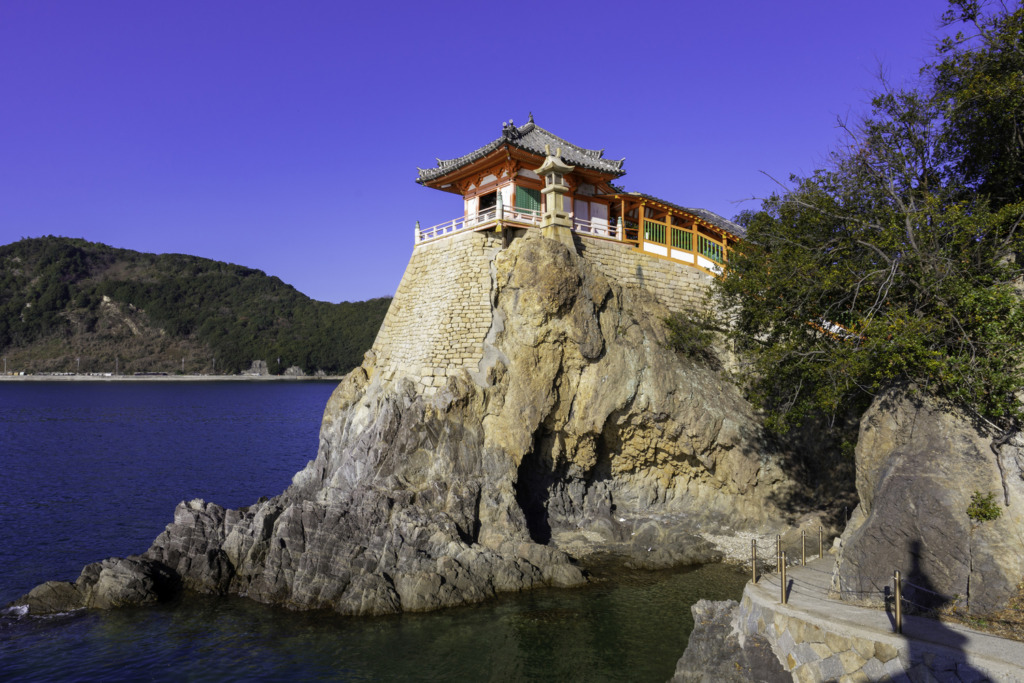
Abuto Kannon Temple is a temple located on a cliff at the tip of Abuto Cape in the southern part of Fukuyama City. It has long been a place of prayer for safe voyages and childbirth.
You can walk around the temple grounds when you pay the entrance fee. The temple is surrounded by the sea, which may seem a little scary, but it is a great place to visit as it is such a hidden gem with a spectacular view of the sea.
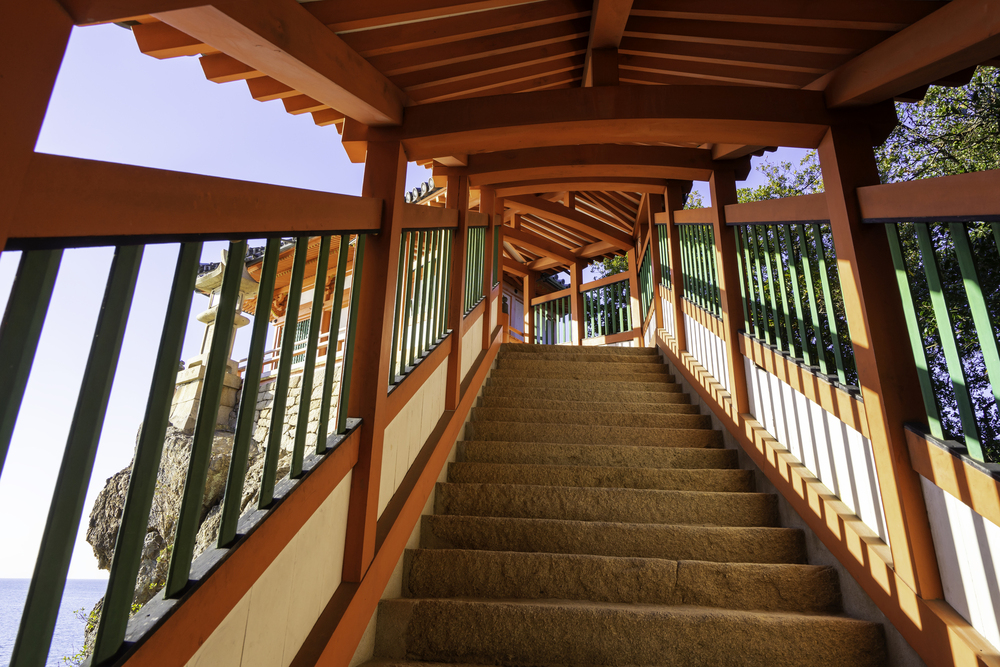
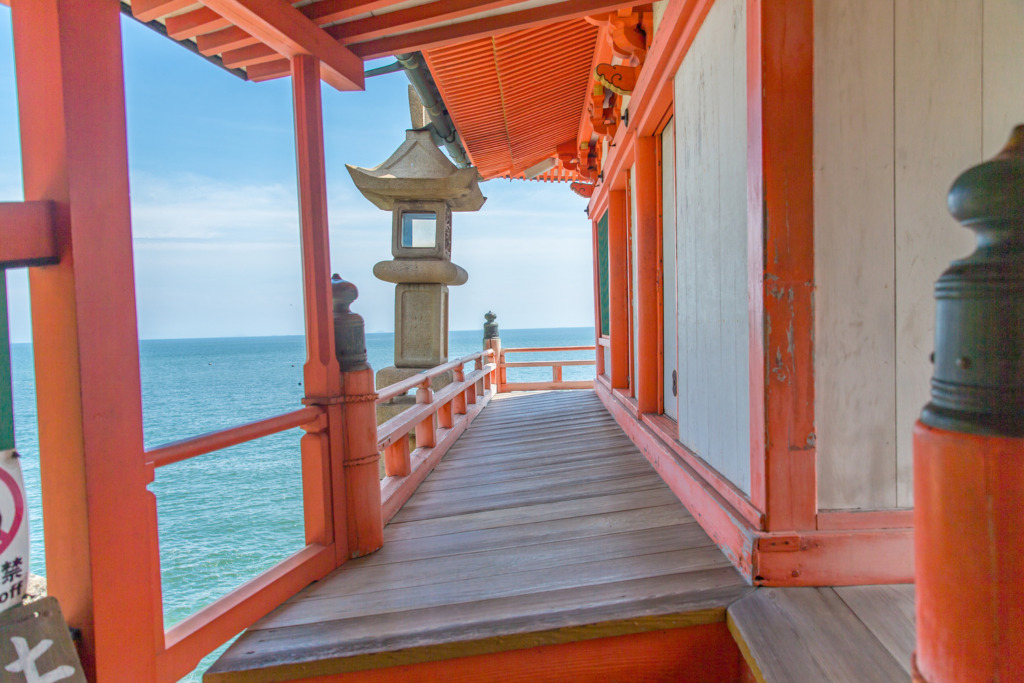
Tomonoura (鞆の浦)
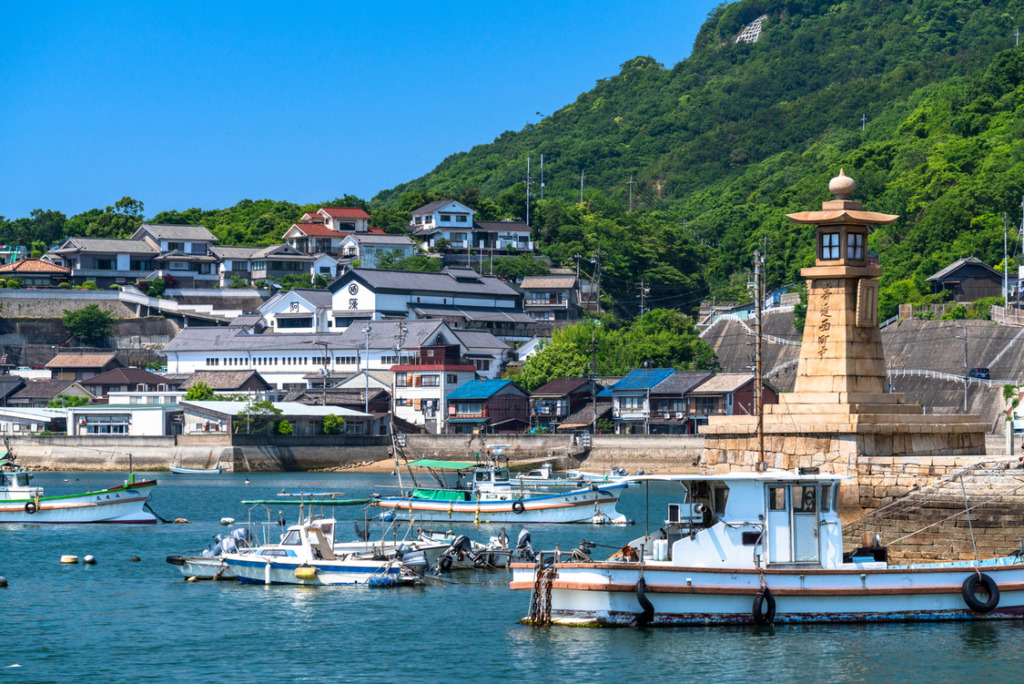
Tomonoura is a beautiful port town in Fukuyama City, Hiroshima Prefecture, known for its history and scenic beauty. It has long flourished as an important port town in Japan, and many historical buildings and cultural assets remain. The streets of the Edo period have been preserved as they were, giving visitors the feeling of stepping back in time.
Because of its beauty, the scenery of Tomonoura has been the setting for many movies and animations, most notably “Ponyo”. For movie fans, it is worth a visit.
In the center of the town is Tomonoura Port, where the ancient lighthouse “Tomonoura Lighthouse” stands as a symbol. This lighthouse has been watching over the port since the Edo period, and is surrounded by the scenery of a traditional fishing village. There are many historic temples and shrines in Tomonoura, where history and nature are in harmony. It is the perfect place to spend a relaxing time.
3 popular spots in Takehara & Okunoshima Island
Takehara Townscape Conservation Area (たけはら町並み保存地区)
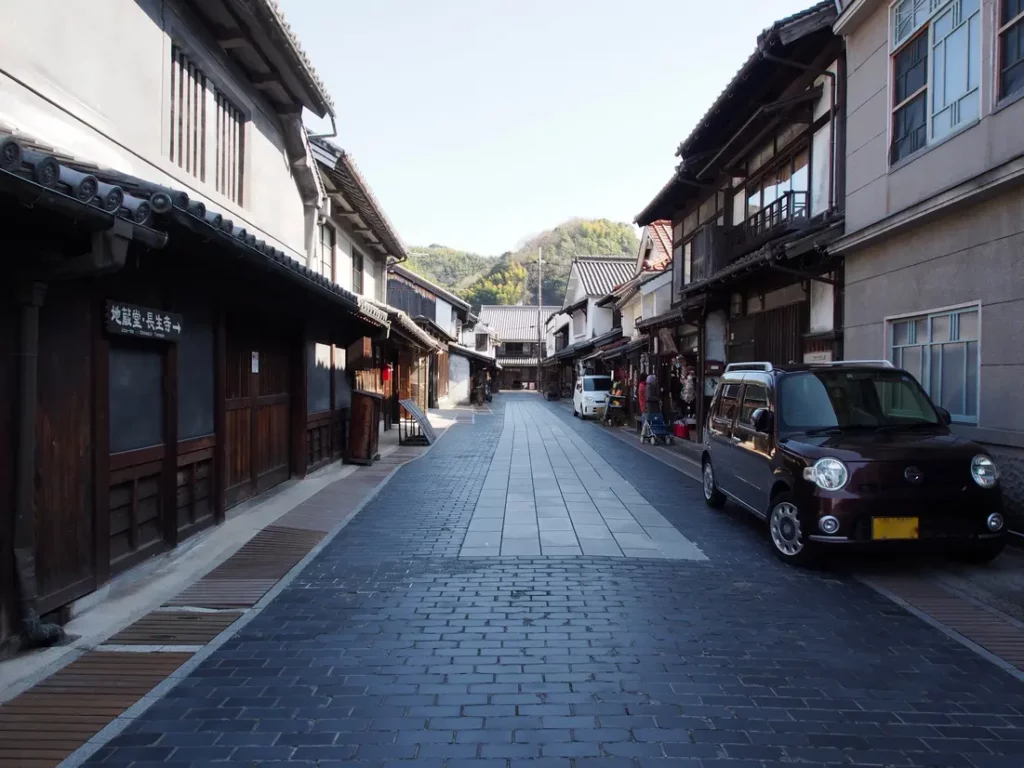
Takehara Townscape Conservation Area is a historical townscape that has been preserved since the Edo period. Once called “little Kyoto,” the area is lined with merchant houses and other structures dating from the Edo period to the early Showa period, and its beautiful townscape attracts visitors. The preservation area is also dotted with museums that tell of the lifestyle and commercial activities of the time.
A visit to Takehara Townscape Conservation Area allows visitors to take a leisurely stroll while enjoying the atmosphere of old Japan. There are also cafes and souvenir stores where visitors can enjoy local specialties and crafts. This district, with its blend of history and culture, is the perfect spot to experience a traditional Japanese townscape.
Machinami Takekobo Bamboo Craft(竹原まちなみ竹工房)
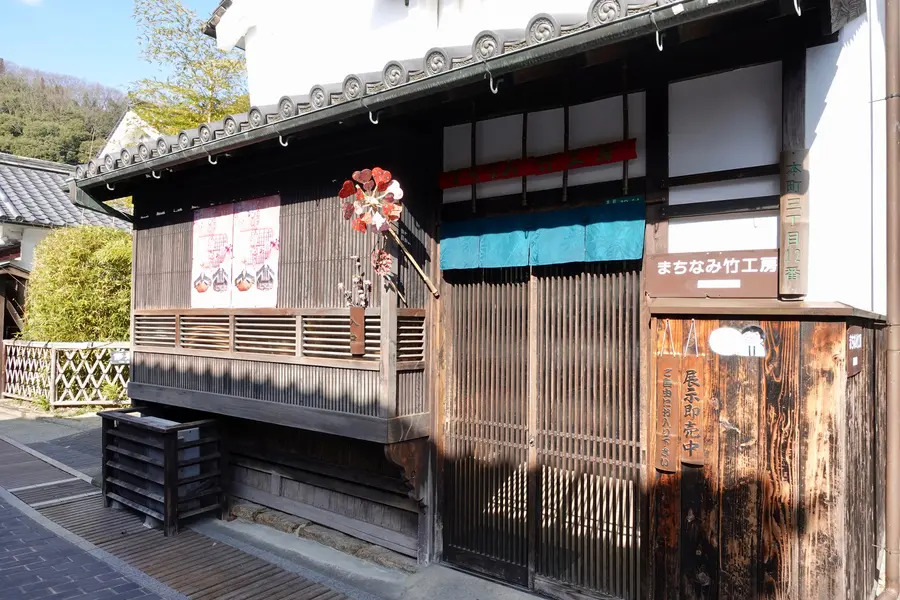
This store is located in Takehara Townscape Conservation Area. Here, visitors can purchase bamboo crafts and watch the craftsmen at work. If you wish, you can try your hand at making windmills and bamboo baskets while receiving careful advice from the craftspeople. There are many crafts with a distinctly Japanese feel, so be sure to stop by.
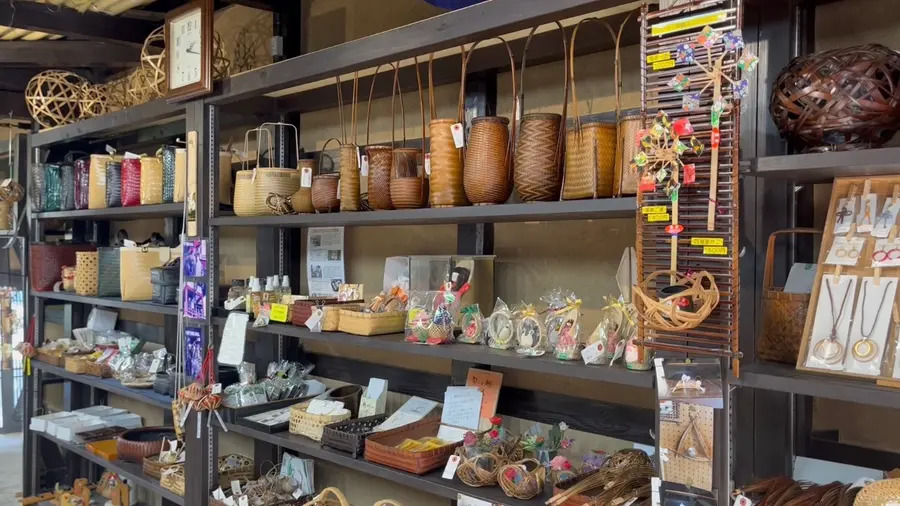
Okunoshima Island (大久野島)
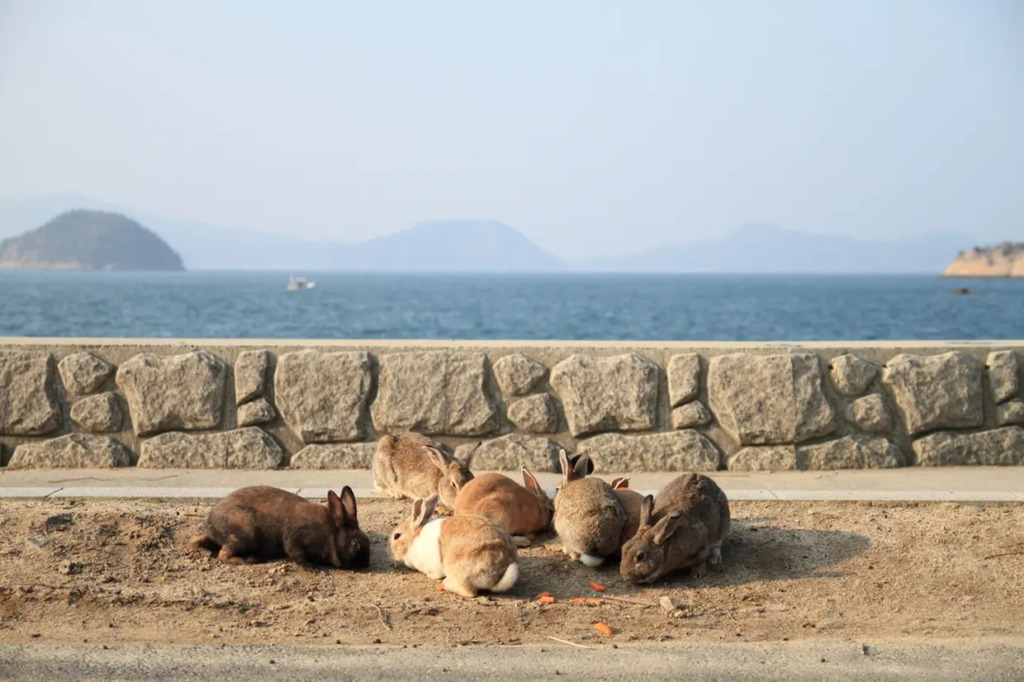
Okunoshima, the small island with a circumference of about 4 km, floating off the coast of Takehara City, is also known as “Rabbit Island” and is famous for the presence of rabbits in the town. Visitors can spend a relaxing time feeding and photographing the adorable wild rabbits.
4 popular spots in Shobara, Miyoshi City and Geihoku area
Ueno Park (上野公園)
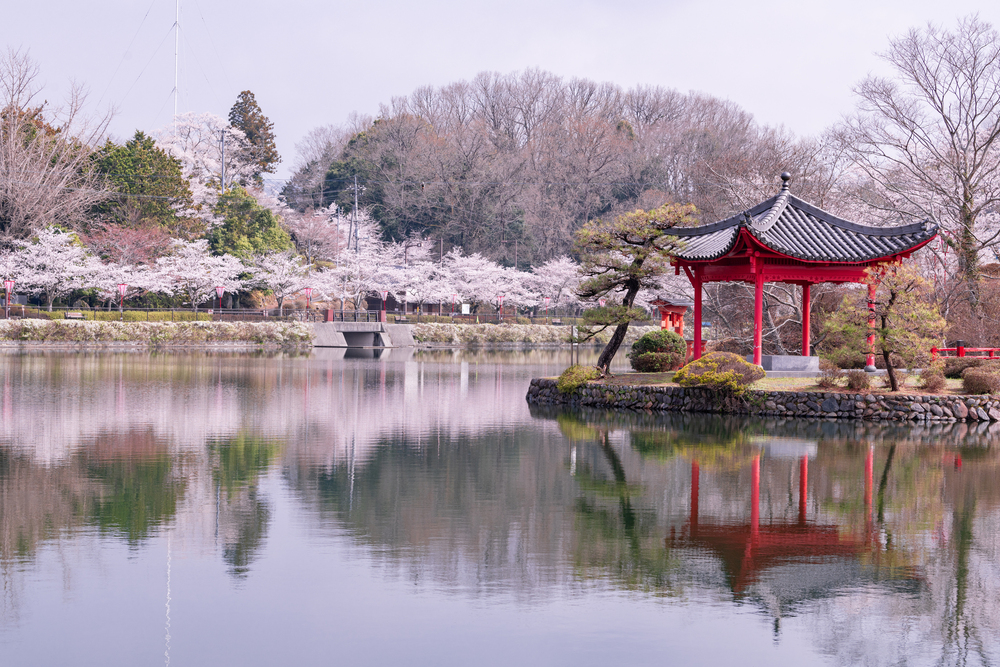
Ueno Park is located in Shobara City. The park is centered around Ueno Pond, which was created by renovating a swamp in the early Edo period, and cherry trees are planted along the river. It is said to be the most beautiful cherry blossom viewing spot in western Japan, especially at night, and has been selected as one of the 100 best cherry blossom viewing spots in Japan. Every summer, a fireworks display is held along the lakeside.
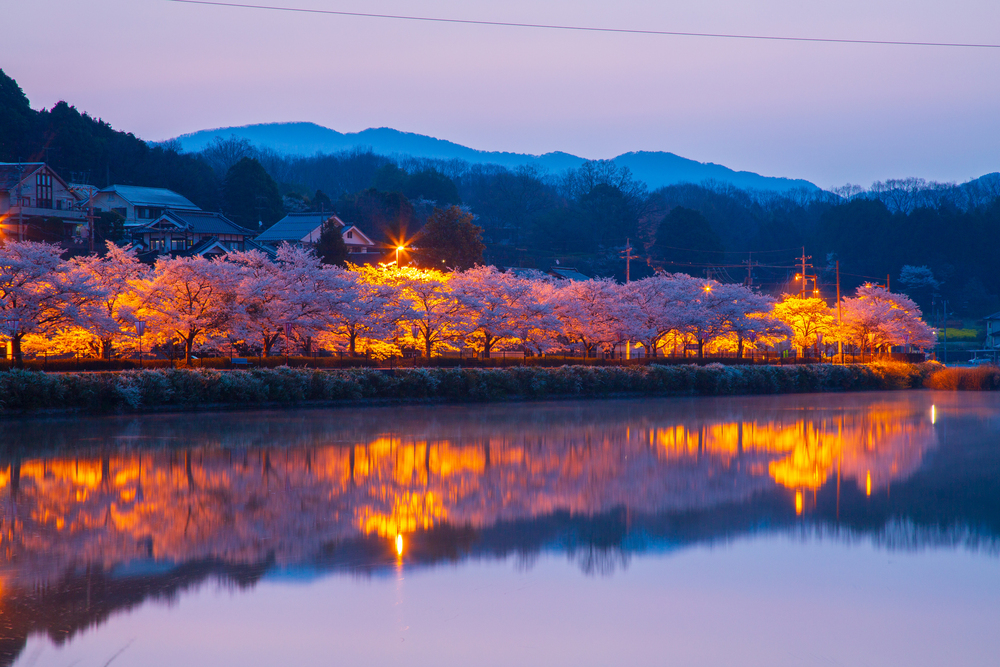
Shinryu Lake (神竜湖)
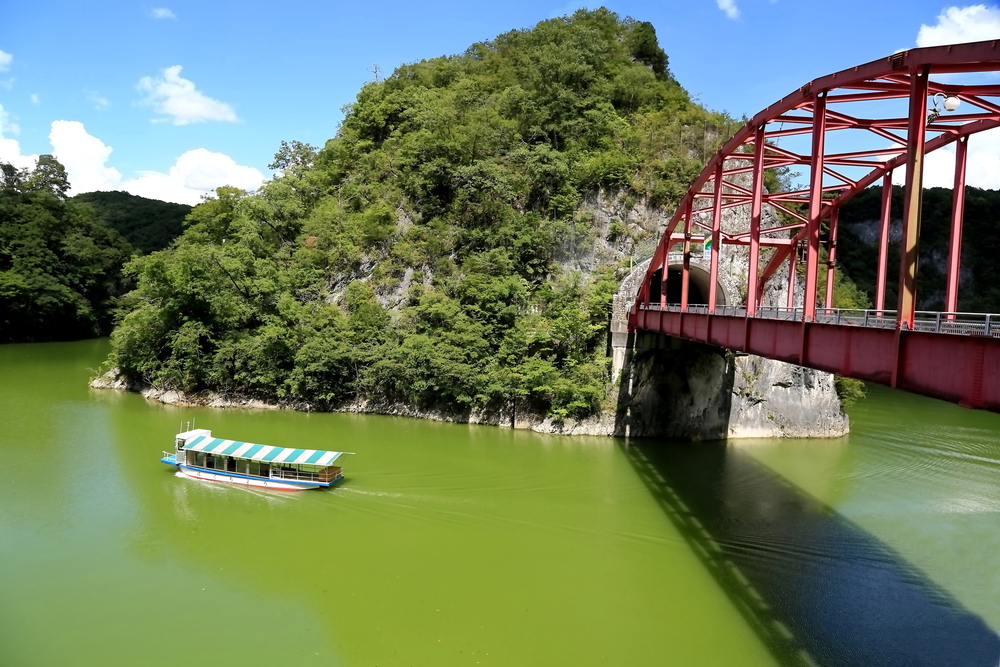
Shinryu Lake, which stretches 24 km around, offers a beautiful view of the Taishaku Gorge on a sightseeing boat ride. Fresh greenery in spring and colored leaves in autumn adorn the lakeside area. The boat ride takes 40 minutes, and the scenery seen from the lake is truly spectacular. There are many places of interest nearby, such as limestone canyons and dams. Shinryu Lake is so harmonized with nature that it is hard to believe that it is a man-made lake. Visitors can enjoy a relaxing time while enjoying the beauty of nature.
Onbashi Bridge(雄橋)
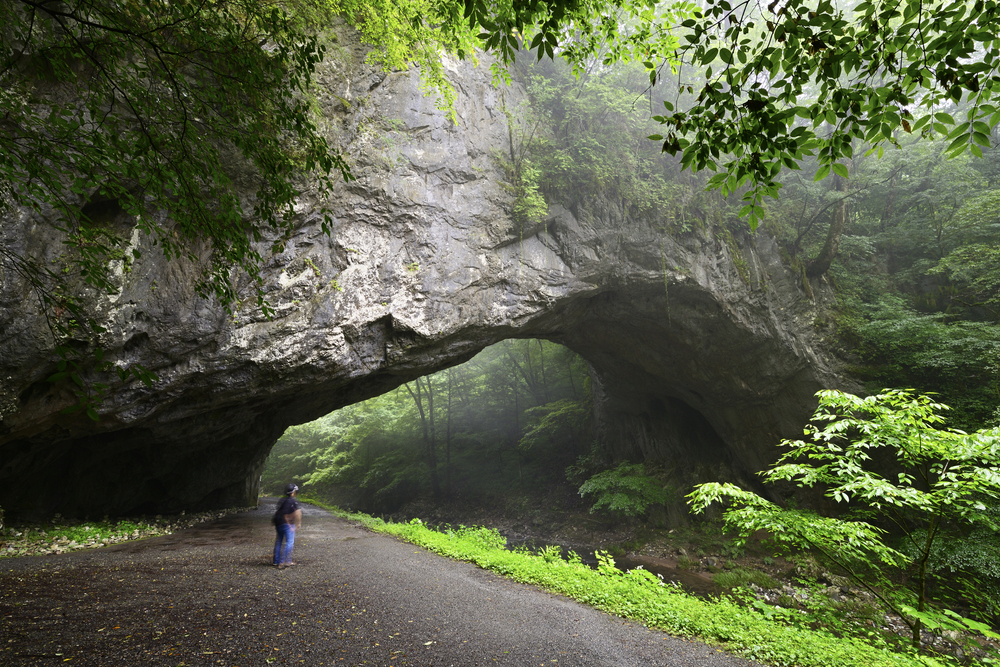
Onbashi Bridge is a gigantic natural bridge created by nature. It is a limestone bridge unlike any other in the world, and was formed over a long period of time by the erosive effects of limestone caves and river water. The mysterious appearance of the bridge is beautiful, and it is a recommended spot to experience the grandeur of nature.
Ozekiyama Park (尾関山公園)
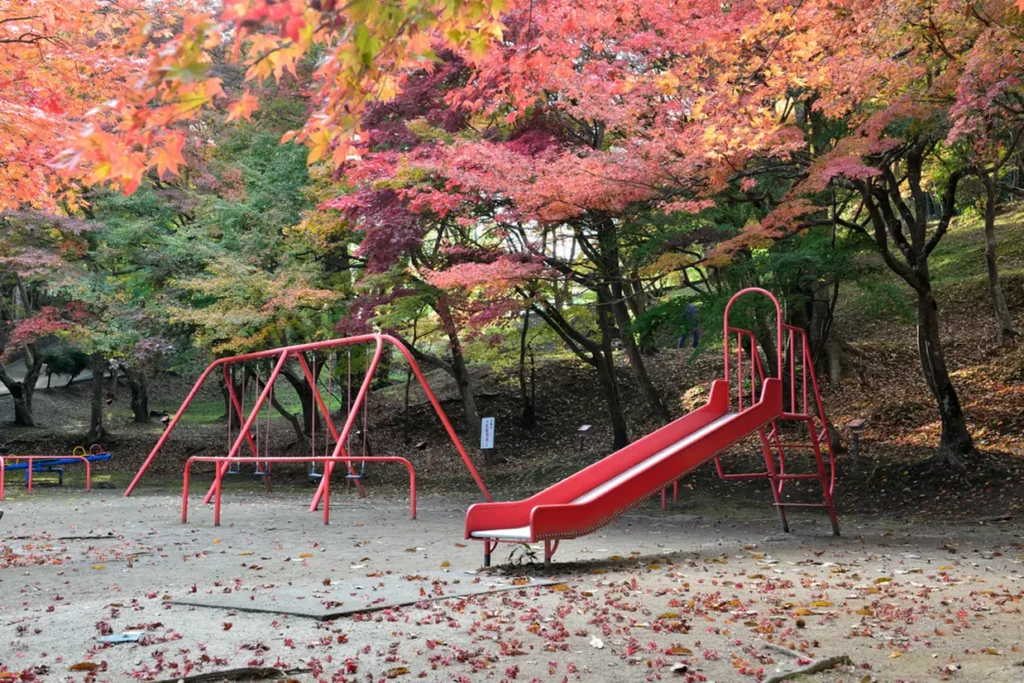
Ozekiyama Park is located in Miyoshi City. The park is famous for its cherry blossoms in spring and autumn leaves in fall, and the mountaintop observation deck offers a panoramic view of Miyoshi City. The park also has a monument to a poet and a statue of a historical figure.
2 popular spots on the Shimanami Kaido
Oyama Shrine (大山神社)
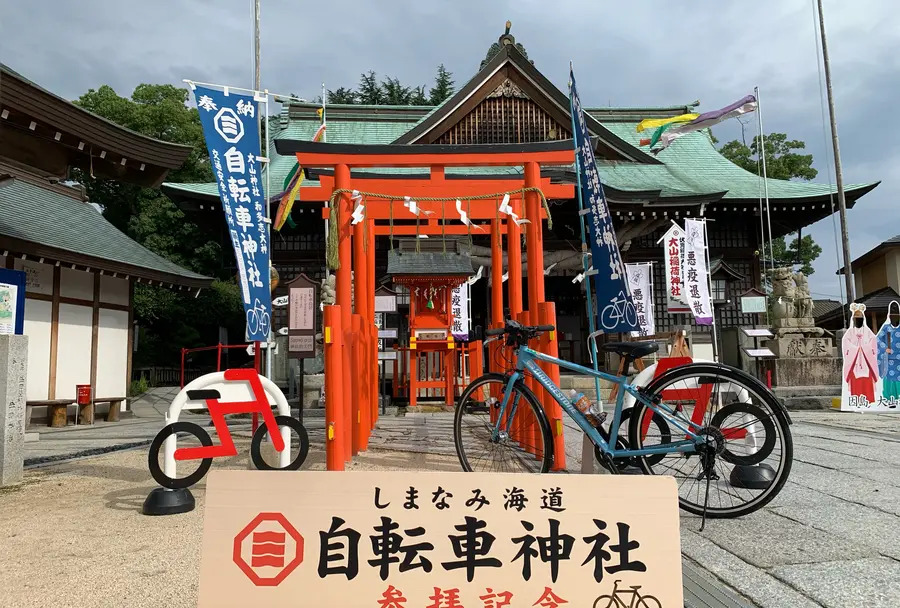
Oyama Shrine is located on Innoshima Island, one of the islands on the Shimanami Kaido. It is the only bicycle shrine in Japan and a very popular spot for cyclists. A small shrine near the main shrine enshrines the god of traffic safety, making it a popular place of worship for cyclists on the Shimanami Kaido. Visitors can have their bicycles purified and purchase a good-luck charm for their bicycles, so please stop by on your way to the shrine.
Tatara Bridge (多々羅大橋)
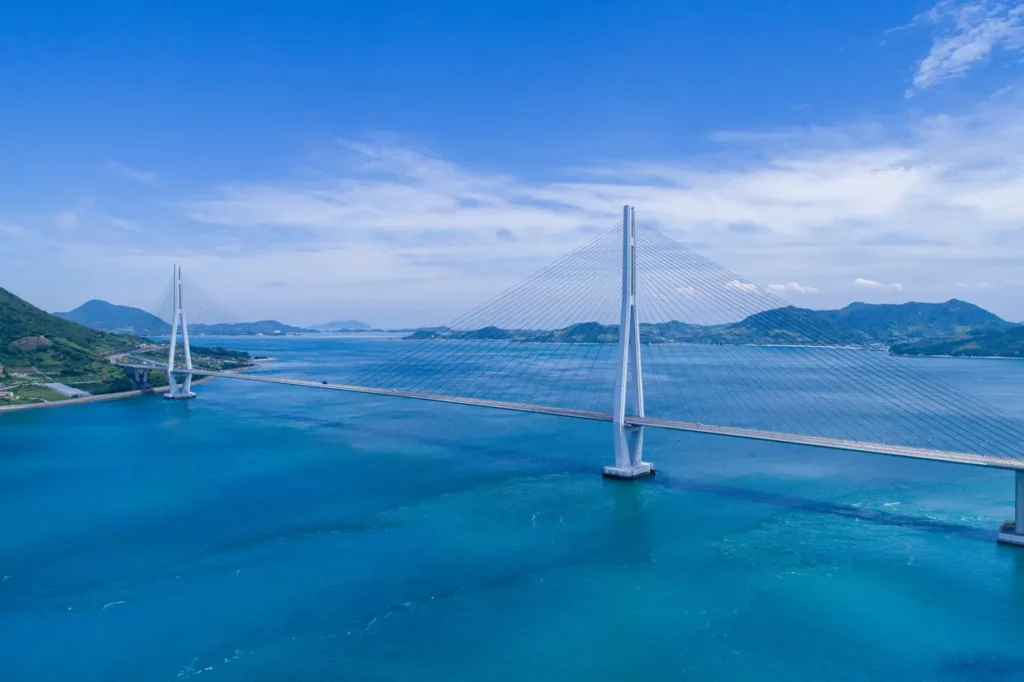
The Tatara Bridg is the world’s longest cable-stayed bridge, connecting Ikuchijima island in Hiroshima and Omishima island in Ehime. It is especially known for its artistic design. Its appearance, which resembles a white bird spreading its wings, is so mesmerizing in its beauty that visitors want to look at it forever. The border between Hiroshima and Ehime is located in the center of the Tatara bridge, making it a popular photo spot for cyclists.
Next, we will introduce recommended spots by theme!
4 unique and cool spots in Hiroshima
Hiroshima is a city full of “unique” and “cool” attractions. The spots that make up the city include nature, the latest fashionable spots, historical places that are unique to Japan, and places where you can experience the unique entertainment of Japan. Here we introduce a selection of unique and cool spots in Hiroshima.
Okonomimura (お好み村)
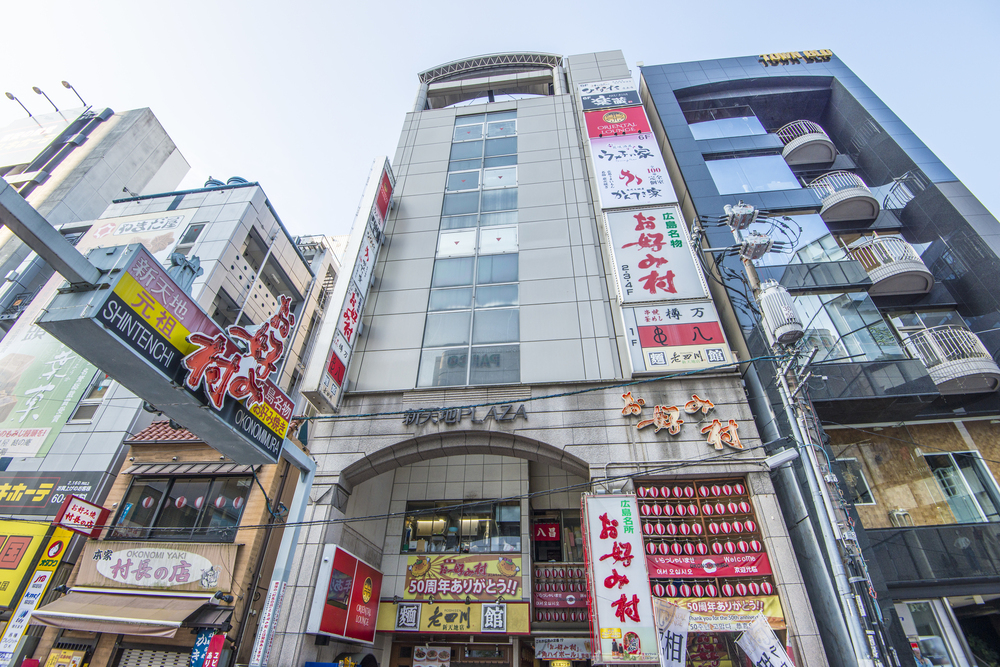
Okonomimura is the Mecca of Hiroshima-style okonomiyaki in Hiroshima City. This unique food culture spot began as a gathering of local food stalls in the 1950s and has now become a tourist attraction with over 20 different okonomiyaki restaurants all gathered under one roof. Each restaurant has its own unique recipe and style, offering a wide variety of flavors, so visitors can enjoy different kinds of okonomiyaki.
Okonomimura is a favorite place for locals as well as tourists, and is bustling with people day and night. Sitting at the counter of each restaurant, you can watch the okonomiyaki being prepared right in front of you, and the aroma and sound of the food will whet your appetite even before you eat.
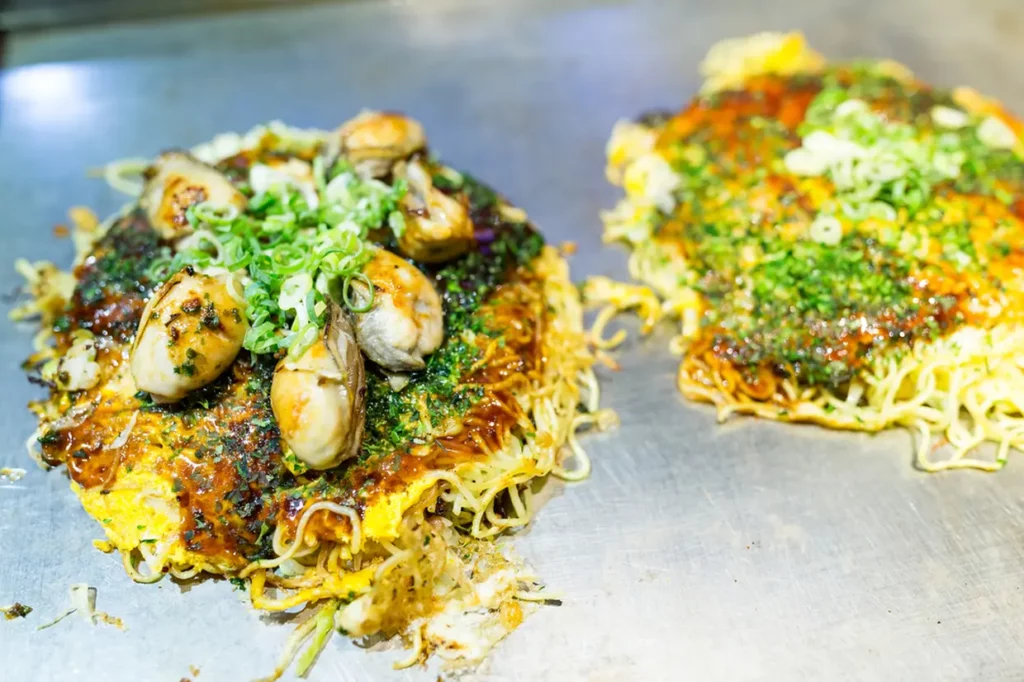
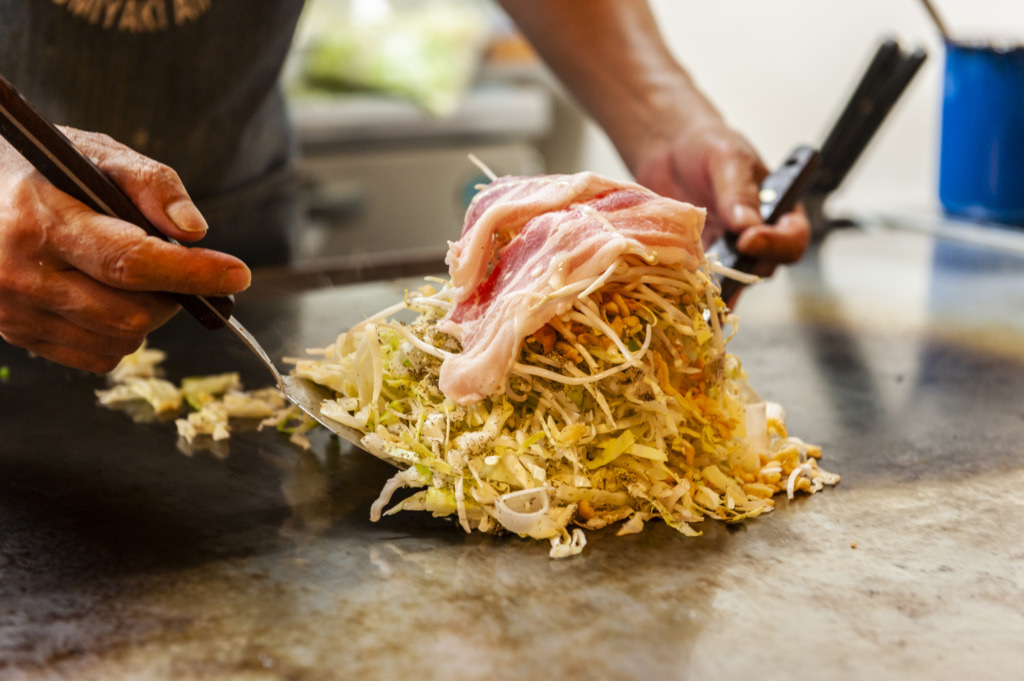
Numaji Transportation Museum (ヌマジ交通ミュージアム)
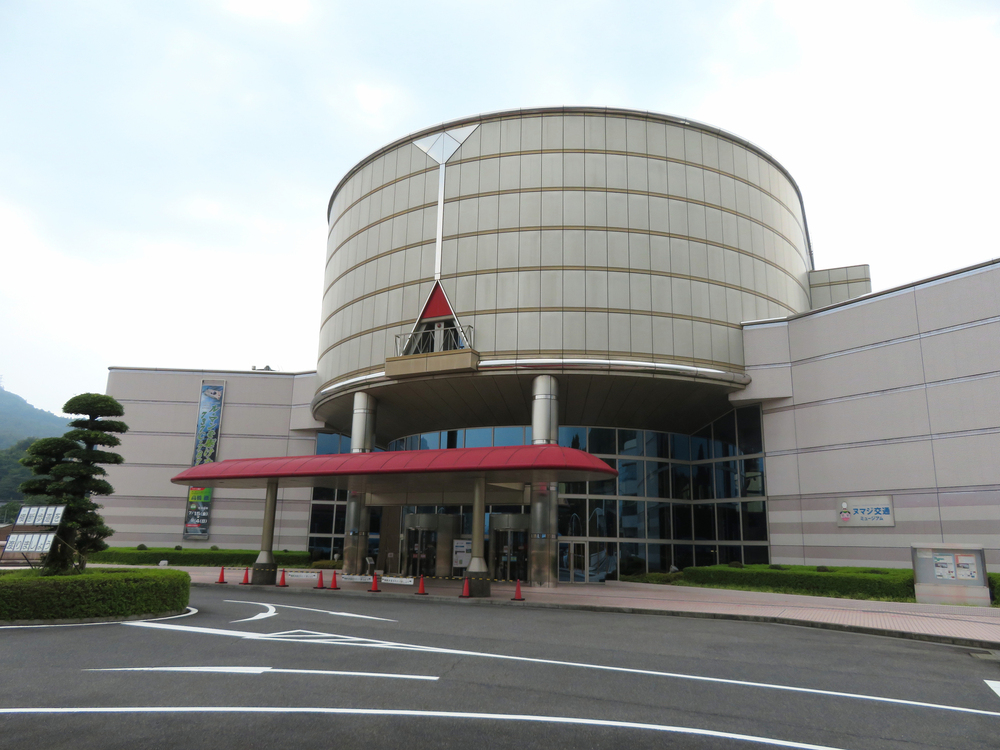
The Numaji Transportation Museum in Hiroshima is a unique museum in Japan specializing in transportation and vehicles, featuring more than 2,000 model exhibits, where visitors can learn about the history and technology of aircraft, ships, trains, and automobiles. There is a wealth of exhibits that can be enjoyed by both children and adults. The full-scale vehicle exhibits and interactive, hands-on exhibits are especially popular.
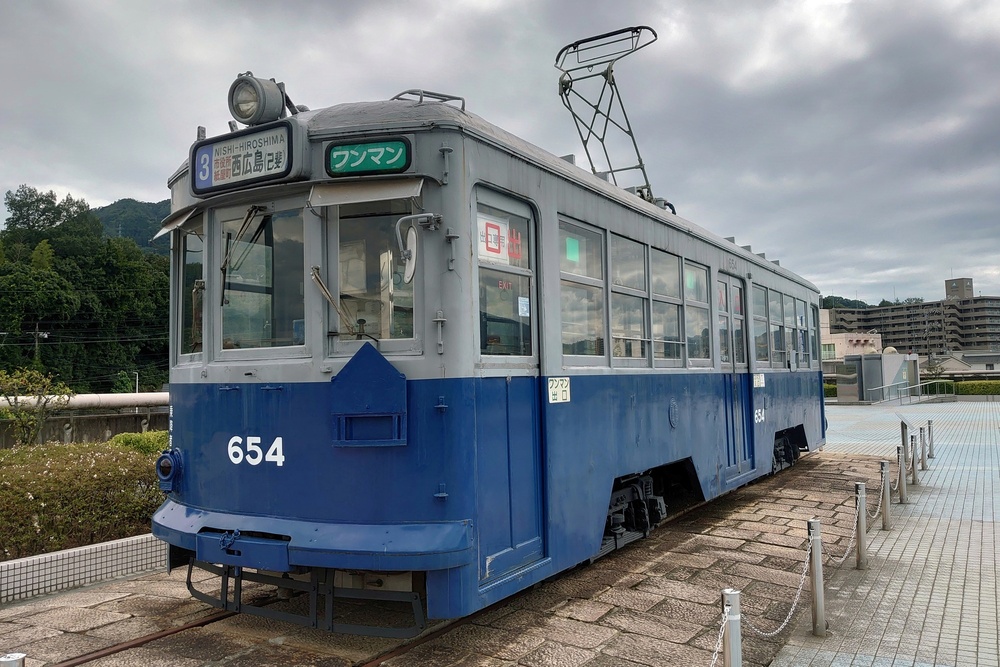
Shinshoji Zen Museum and Gardens (神勝寺禅と庭のミュージアム)
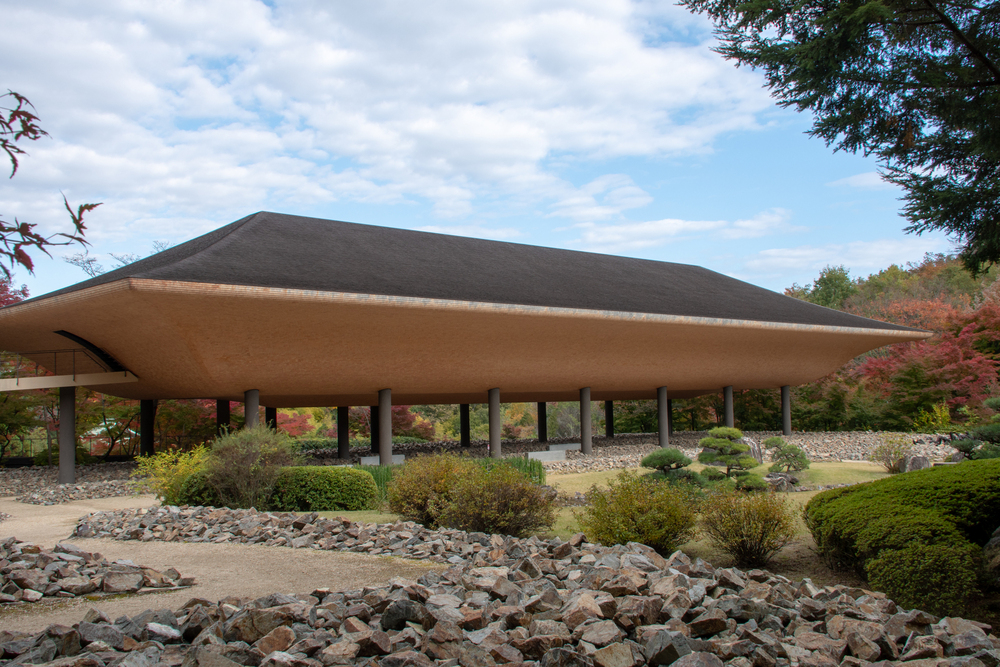
This beautiful Zen temple and garden complex is located in Fukuyama City, Hiroshima Prefecture. The museum is a special spot where visitors can experience the spirit of Zen and the beauty of its gardens. The grounds are filled with serene and harmonious gardens where visitors can relax in body and soul.
It also offers a variety of hands-on programs based on Zen teachings. They also offer one-day Zen experiences and overnight Zen experiences, through which you can gain a deeper understanding of traditional Japanese culture. If you are interested, please come and experience the world of Zen.
*Reservations are required for the experience. Check the official website for details!
Official website: https://szmg.jp/en/
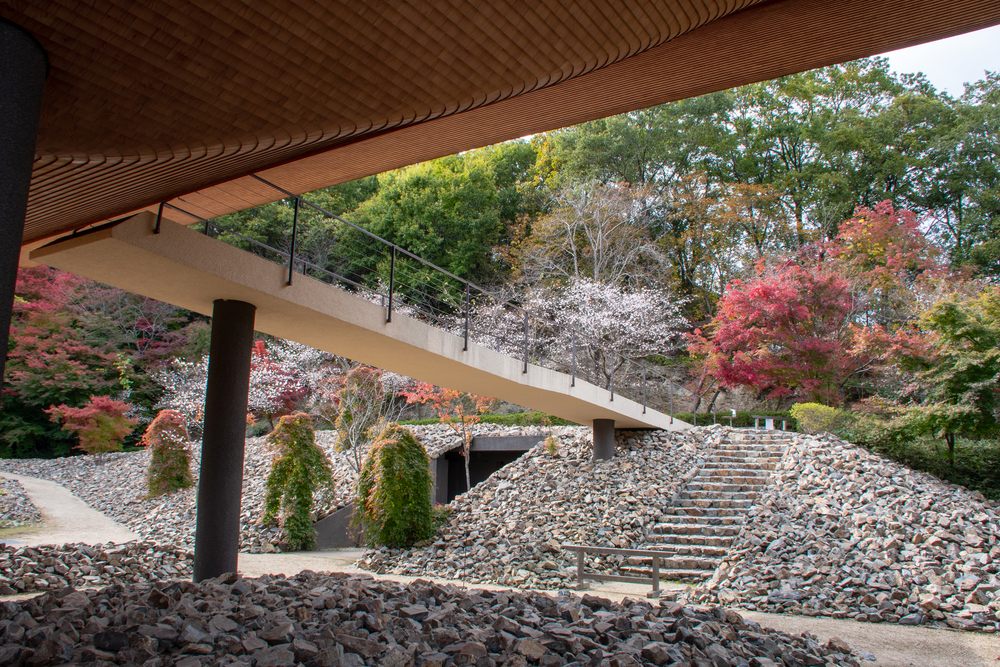
OKOSTA Hiroshima Station (オコスタ広島駅)
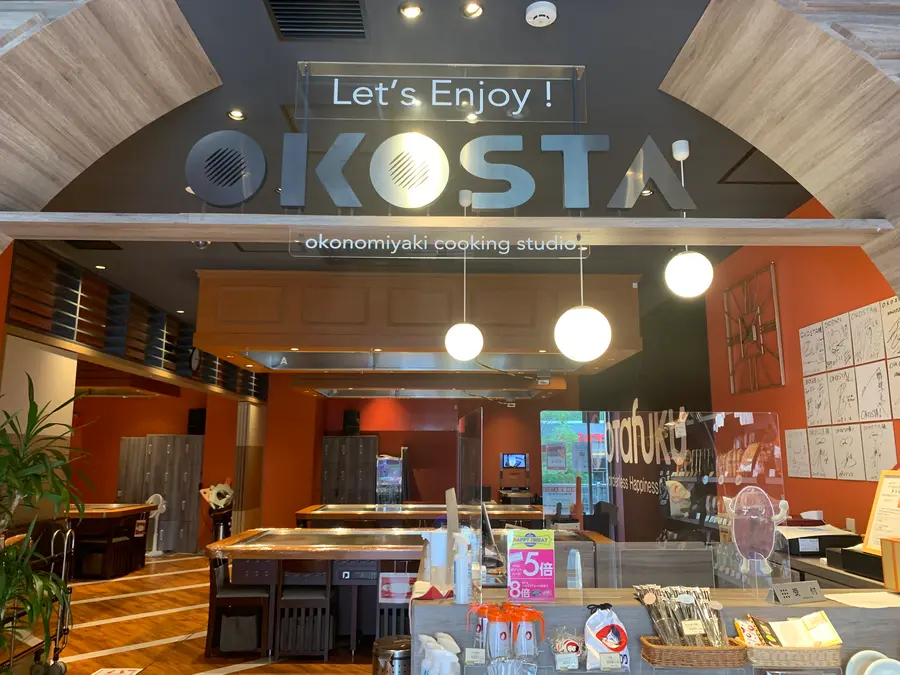
Hiroshima Station has a cooking studio where you can experience authentic okonomiyaki making. Okosta Hiroshima Station is located in the Ekie shopping mall directly connected to Hiroshima Station, making access very convenient. Using a large griddle, you will be taught the procedure for making okonomiyaki. The pleasure of tasting your own okonomiyaki on the spot is exceptional. Not only standard okonomiyaki, but also vegetarian and Muslim-friendly okonomiyaki are available, allowing you to choose the type that suits you best. There is also a store where souvenirs are sold.
*Reservations are required for the experience. Check the official website for details!
Official website: https://www.otafuku.co.jp/laboratory/event/okosta_eng.html
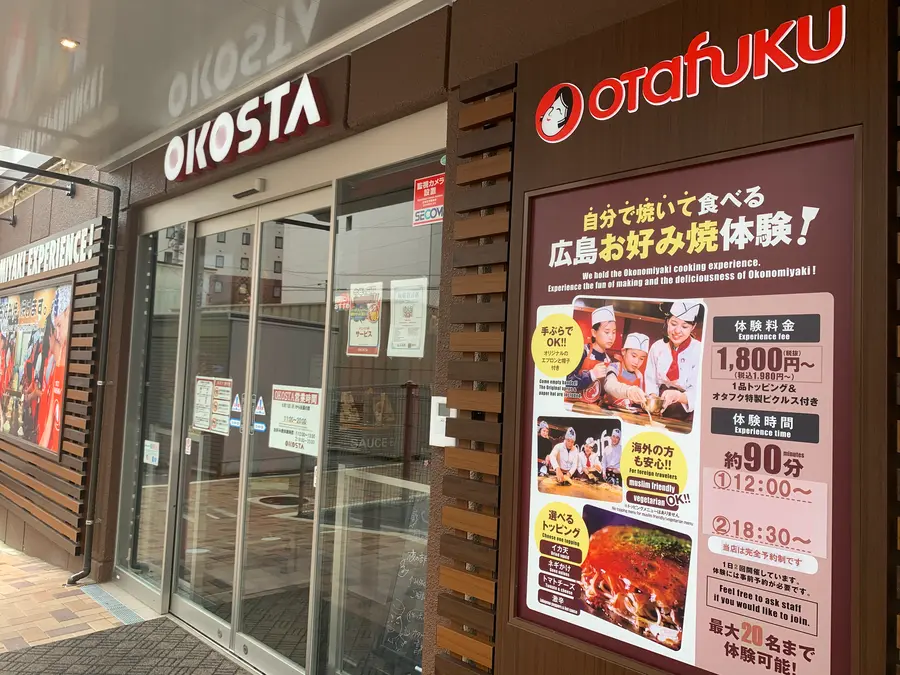
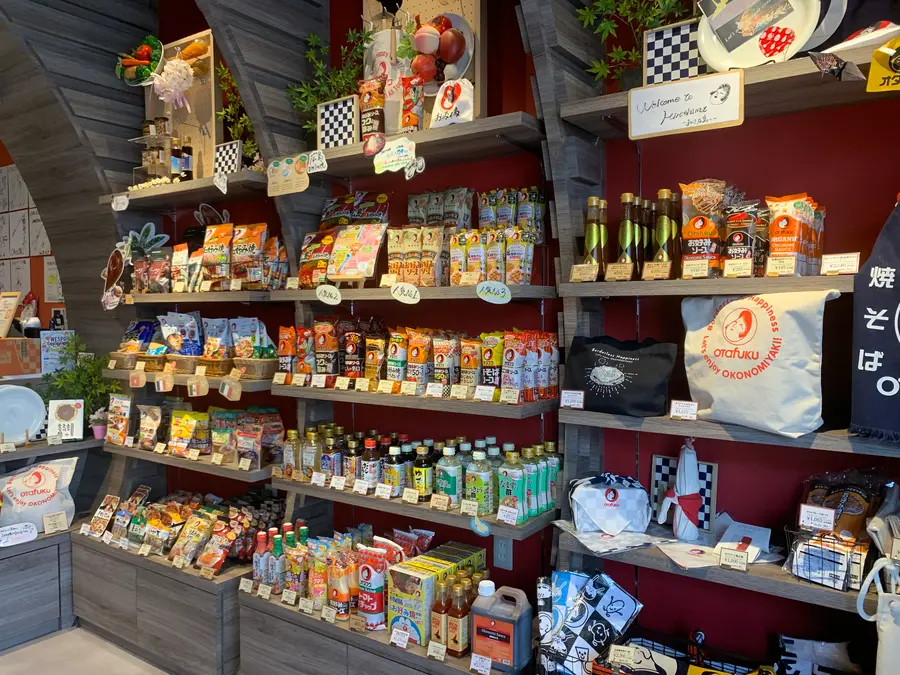
2 romantic spots for couples
Many people would like to visit romantic spots during their trip to Hiroshima. Here are two spots that we particularly recommend.
Joyato Stone Lighthouse (常夜燈)
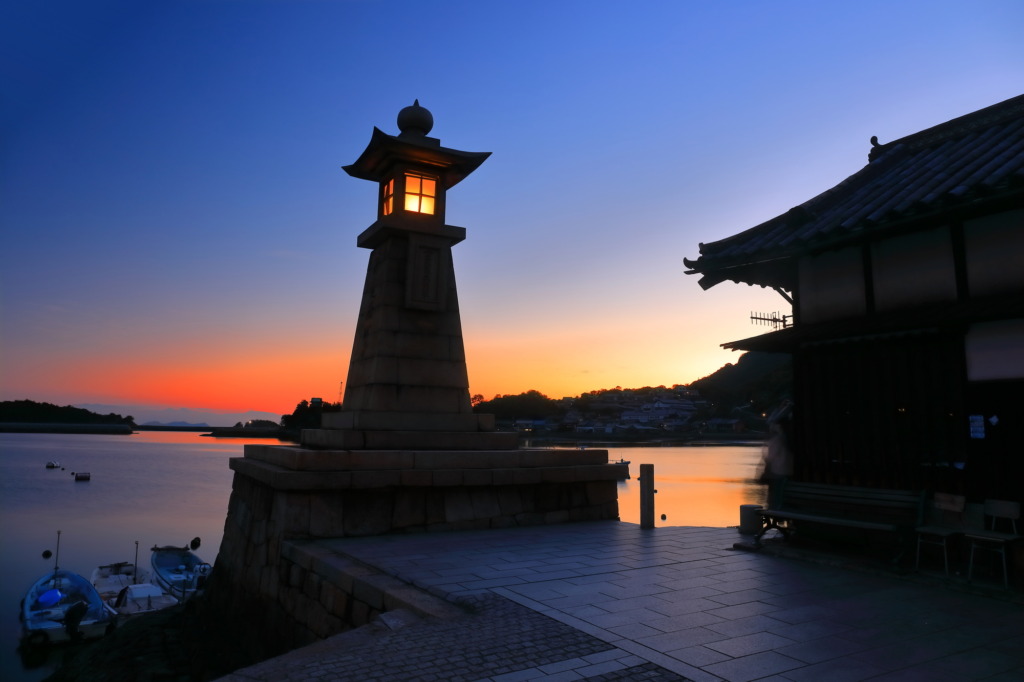
Joyato Stone Lighthouse is a traditional Japanese lantern that has been used to light the way at night. This lighthouse is particularly famous and was installed in the Edo period (1603-1868). Tomonoura is an important port town on the Seto Inland Sea and has played an important role as a landmark to guide ships safely at night.
Around dusk, the lanterns are lit and their warm light softly illuminates the surroundings. This scene creates a romantic atmosphere, as if one has stepped back in time to a past Japan. The Tomonoura nightlights, combined with the surrounding historical townscape, further enhance the charm of the Tomonoura area. Tomonoura, which retains the atmosphere of a port town, is a fun spot just to stroll around. Photography with the nightlights in the background is also popular, and is one of the reasons why so many tourists come to Tomonoura.
Senkoji Park (千光寺公園)
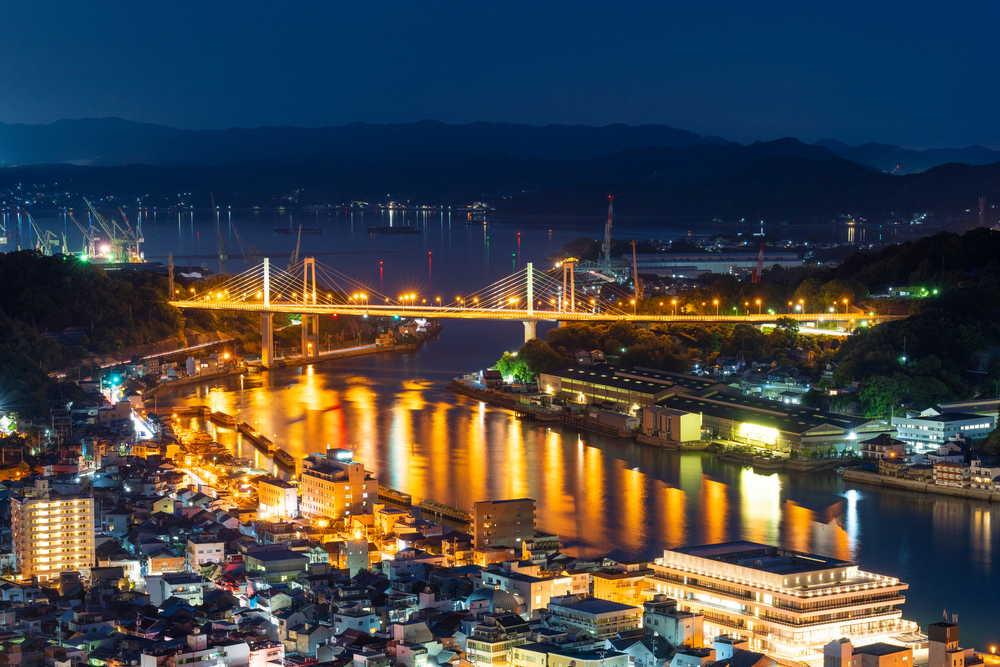
Senkoji Park stretches from the top to the middle of Senkoji Mountain in Onomichi City. It is also recognized as a sacred place for lovers. Popular spots such as Senkoji Temple and an art museum are scattered throughout the site. The observatory at the top of the mountain commands a panoramic view of Onomichi City, making it one of the most popular tourist attractions in Onomichi. It is also the best location for night views and a popular date spot. You can take a ropeway to the top of the mountain.
3 family-friendly spots to enjoy with children
There are many places in Hiroshima that parents and children can enjoy together with their children.
Mazda Museum (マツダミュージアム)
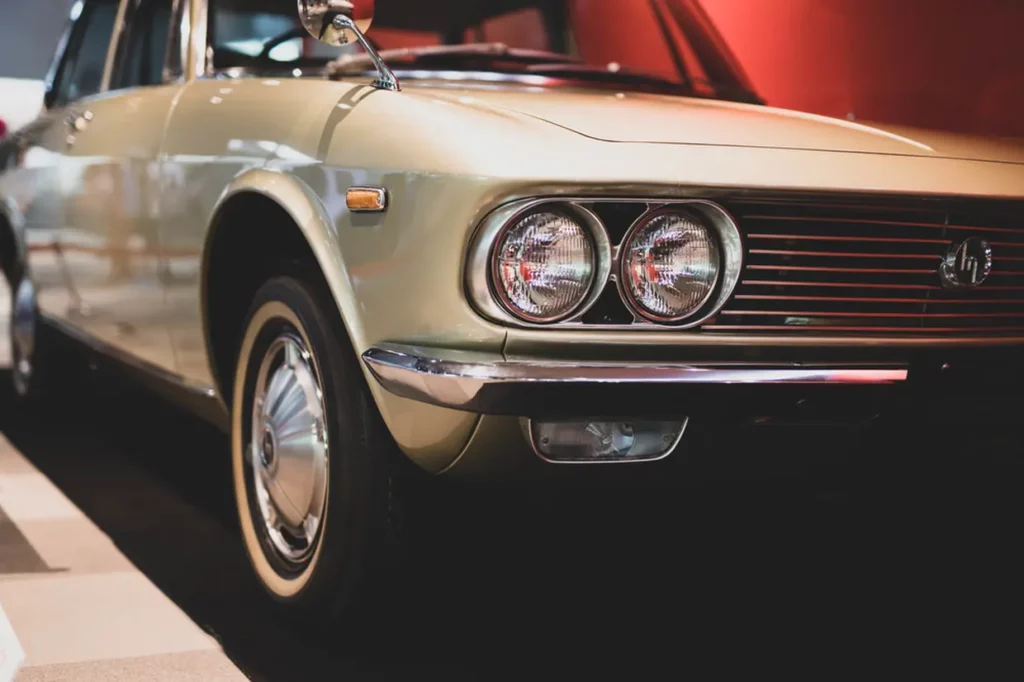
Located in Fuchu-cho, Aki-gun, Hiroshima Prefecture, the Mazda Museum is operated by Mazda. The museum is a popular destination for car enthusiasts and tourists from Japan and abroad as a place to learn about Mazda’s history, technology, and vision for the future.
At the museum, visitors can learn about Mazda’s history from its founding to the present day through actual vehicles and technical exhibits. Vehicles on display include everything from classic cars to the latest models, allowing visitors to experience Mazda’s evolution firsthand. Visitors can also see how cars are actually assembled at the Mazda Museum.
Reservations are required. Please check the official website for details.
Official website: https://www.mazda.com/en/about/museum
Miyajima Public Aquarium (みやじマリン/宮島水族館)
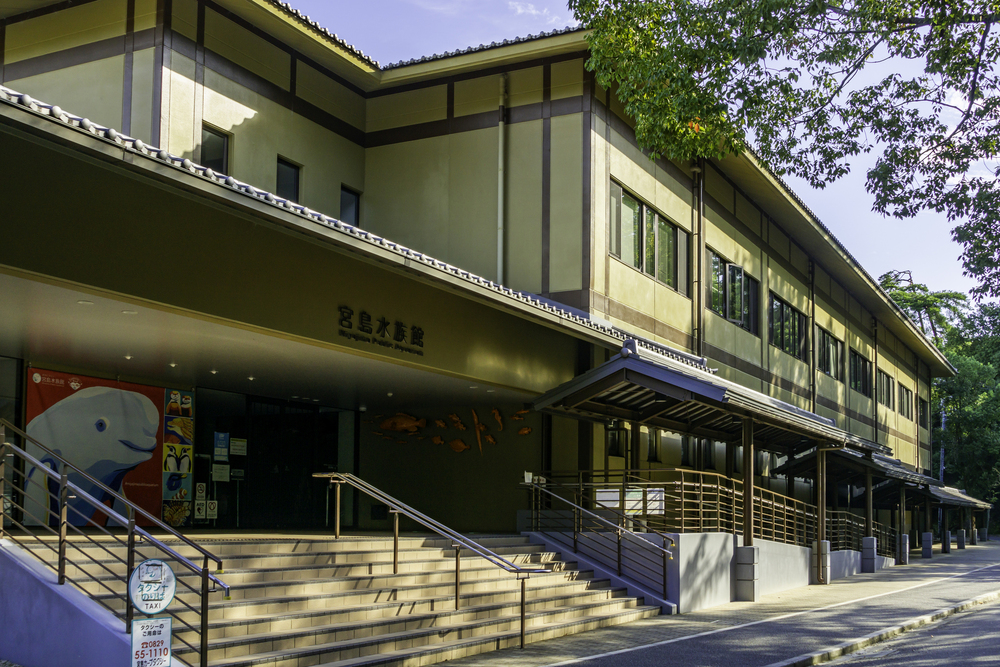
It is a fascinating aquarium located on Miyajima Island in Hiroshima. Visitors can learn about the diverse marine life of the Seto Inland Sea and its ecosystem. Miyajima is known for Itsukushima Shrine, which is registered as a World Heritage site, and is a famous spot visited by many tourists. The aquarium on Miyajima is a must-see for tourists.
It also features rare creatures such as the endemic species of the Seto Inland Sea. Sea lion and penguin shows are also popular, and both children and adults can enjoy the fun performances.
Sera kogen farm (世羅高原農場)
Sera kogen farm is a beautiful farm park located in Sera Town, Hiroshima Prefecture. Visitors can enjoy seasonal flowers and nature. The vast grounds are filled with tulips and cherry blossoms in the spring, sunflowers in the summer, and cosmos and dahlias in the fall, attracting visitors. The flower garden scenery is particularly breathtaking, making it an ideal location for photographers and people who want to enjoy nature. The area is crowded with families enjoying picnics and couples enjoying a relaxing time. This is a perfect spot for families.
Enjoy gourmet food unique to Hiroshima
Hiroshima is known as a region rich in delicious food. Here are three must-taste specialties when you visit Hiroshima.
Oyster
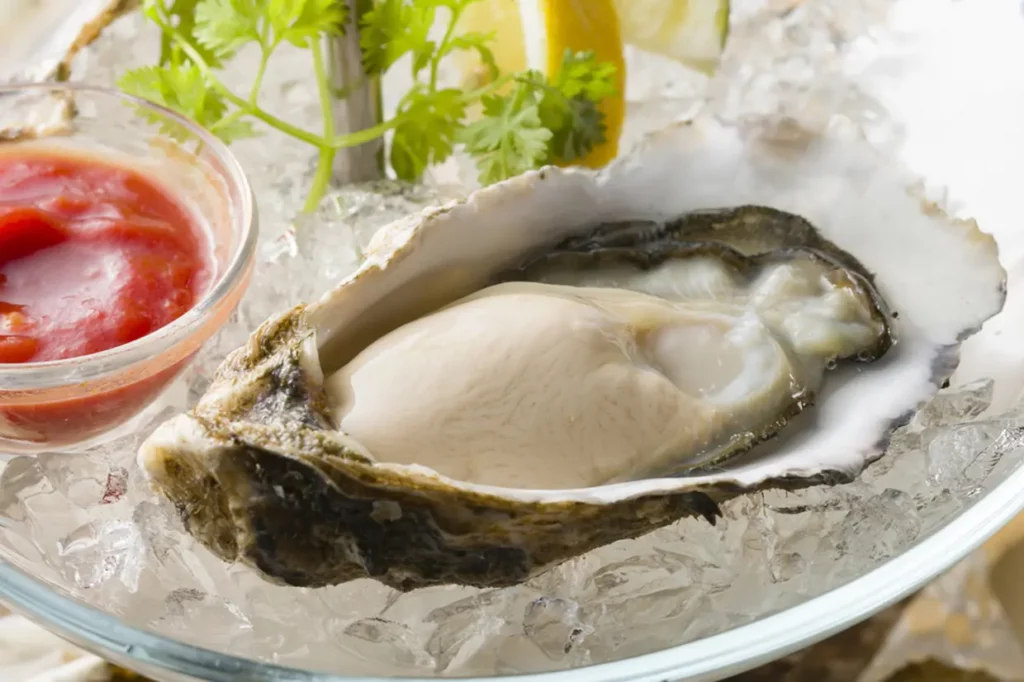
First, there is the world-famous Hiroshima oyster. Oysters grown in Hiroshima are popular for their size and rich flavor. You can enjoy fresh oysters in a variety of cooking methods, such as grilled oysters, fried oysters, and oyster dote nabe (hot pot). It is said that winter is the best season for oysters, but in Hiroshima, delicious oysters can be enjoyed throughout the year. Oyster festivals are also held and attract many tourists.
Anago Meshi
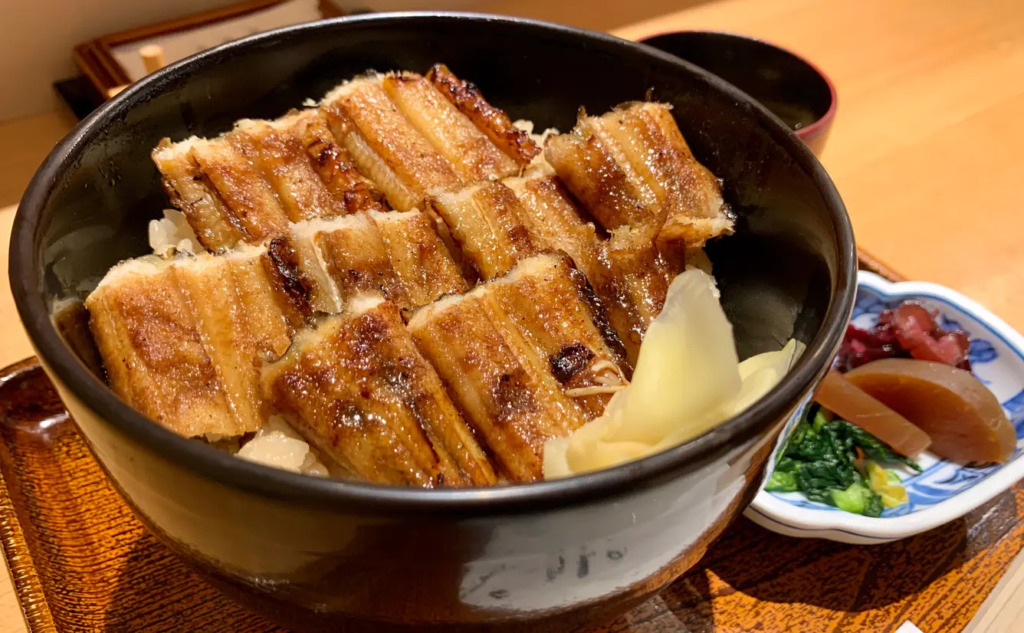
Next, Anago-meshi is a traditional local dish of Hiroshima. The rice topped with a generous portion of steamed conger eel is perfectly matched with a sweet and spicy sauce that melts in the mouth. Miyajima, the birthplace of anago-meshi, attracts many tourists in search of anago-meshi. There are many long-established specialty stores that have been around since ancient times, so you can enjoy a taste of history as well.
Hiroshima-style okonomiyaki
Finally, Hiroshima-style okonomiyaki is a well-known specialty throughout Japan. It is characterized by its unique style of cooking, in which cabbage, bean sprouts, pork, soba or udon noodles, and eggs are layered on a thin crepe-like dough. It is finished with a special sweet and spicy sauce. There are many okonomiyaki restaurants in Hiroshima City, each offering its own special flavor.
Discover how to enjoy each season
Japan has four distinct seasons, each with different scenery and things to do and enjoy. Each time you visit Hiroshima, you can enjoy different attractions. If you are wondering which season to visit, here is an article that explains in detail how to enjoy each season. Please take a look at it as a reference for your travel plans.
